Feb 2016 1st Edition
Feb 2016 1st Edition JoyTranslations
More funding support for students
More funding support for students JoyGovernment has set aside an additional R6.912 billion to support university education.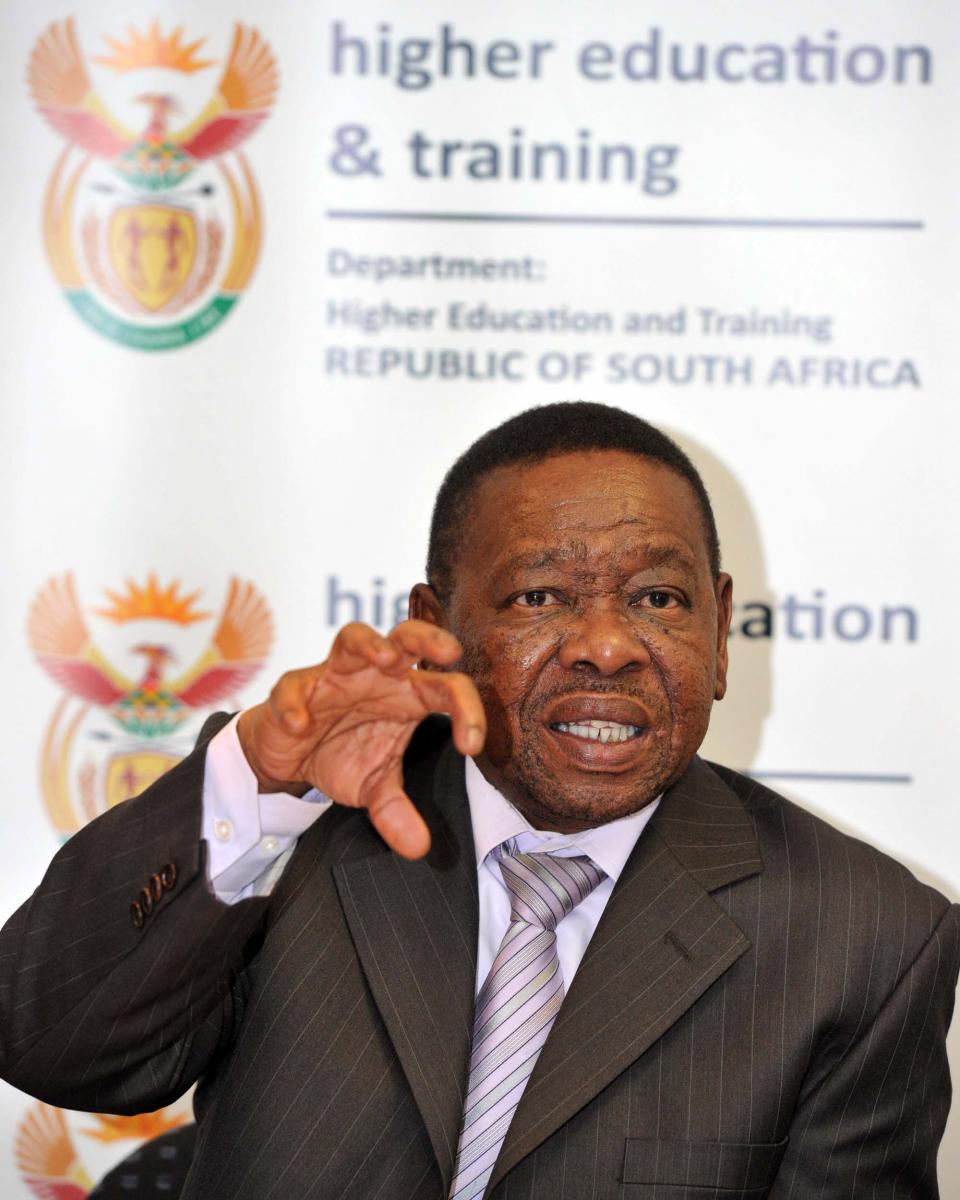
Announcing the additional funding, Higher Education and Training Minister Blade Nzimande said this was a strong indication that government had listened to the concerns raised by university students last year during their march against university fee increases.
“As an immediate measure, we have resolved the zero percent fee increment for 2016 with universities, which amounted to R2.33 billion… University students who meet the National Student Financial Aid Scheme (NSFAS) means test will not be required to pay upfront payments when registering this year,” said the Minister.
The R6.912 billion additional funding includes the R2.33 billion for resolving the zero percent fee increment; R2.543 billion is for NSFAS to provide loans to assist 71 753 identified students, who were either partially funded or not funded at all in the past three academic years.
Minister Nzimande said students who have performed well and come from disadvantaged families will receive financial help from government.
The NSFAS has been allocated over R700 million for full bursaries for scarce and critical skills for the current year from the National Skills Fund (NSF).
“This funding is made available through the financial aid offices at universities, and students wishing to make use of these bursaries are advised to enroll for critical skills study programmes, which include science, commerce, health sciences, engineering and many others,” said Minister Nzimande.
The Minister said NSFAS has also earmarked R72.9 million in the 2016 academic year to provide financial aid to disabled students in universities.
“The department is committed to expanding access and success in our institutions for students who have special needs,” said the Minister.
At technical and vocational education and training (TVET) colleges, government pays 80 per cent of the programme cost of the student’s choice, with an additional allocation being made dependent on the type and severity of the disability.
“Government will assist students who display academic ability but come from poor and disadvantaged families through NSFAS at all 26 public universities and 50 public TVET colleges throughout the country.
“NSFAS will be funding 205 000 first-time entering and continuing eligible students at universities and 200 000 students at TVET colleges in 2016 by providing student loans and bursaries totaling R10 million,” said Minister Nzimande.
Post-matric opportunities for learners
Post-matric opportunities for learners JoyLearners who finished matric in 2015 and were not able to get into universities need not spend a year without going to school.
Higher Education and Training Minister Blade Nzimande announced that there were approximately 517 402 opportunities available in the post-school system.
These opportunities, the Minister said, are found in the public universities and TVET colleges, as well as various workplace-related training opportunities supported through the 21 Sector Education and Training Authorities (SETAs), which help to promote and fund occupational/skills programmes linked to educational institutions and workplace.
The Minister said there were 212 472 new entrant opportunities at universities, 133 551 engineering and business studies opportunities at TVET colleges, 887 994 occupationally-directed opportunities in collaboration with TVET colleges, SETAs and employers.
The Minister also said there were about 30 750 new artisan learners to be registered, 51 835 learning programme opportunities in the form of 5 087 apprenticeships, 9 073 bursaries, 20 138 learnerships and 17 537 skills and work readiness programmes supported through the SETAs.
The Minister advised those who were not successful in completing their matric to consider rewriting their examinations or access all the sources of relevant information from his department to explore their options.
New universities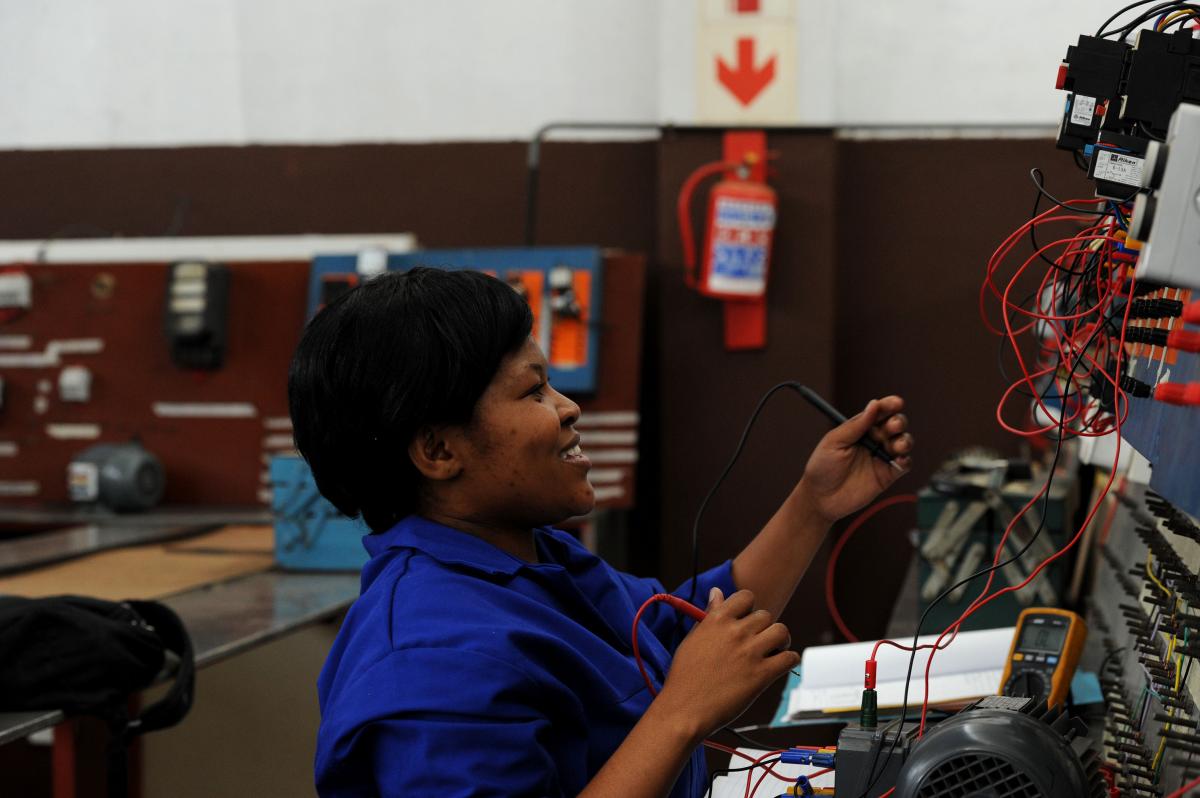
The Minister said the intake of students at the new universities has increased.
“This year, the enrolment will increase from 130 to 797 students at Sol Plaatjie University and from 140 to 940 at the University of Mpumalanga.
“The Sefako Makgatho Health and Science University will be entering its second year of operation with an intake of 1 300 students,” said the Minister.
He said South Africa recently established its ninth medical school – the first built in the democratic South Africa – and opened its doors for the first intake of 60 new students at the University of Limpopo last month.
“This is the second historically disadvantaged university to be involved in the training of our medical doctors and is linked, over the longer term, to the Presidential Project of building an academic hospital in Limpopo.”
The 26 public universities offer a diverse range of degrees, diplomas and higher certificates to prepare the matric class of 2015 to take their rightful place in the country’s economy.
The national average annual increase over the next five-year period in the number of first-time entering students at higher education institutions is targeted at 4.7 per cent, with first-time entering students making up approximately 25 per cent of the undergraduate student population.
“In 2016, our public universities will provide access to approximately 212 472 new entrants wishing to pursue their studies across all general, technical and professional fields including Business and Management, Science, Engineering, Agriculture and Technology, Humanities, Social Sciences, the Arts and Education.”
New colleges on the cards
Government is in the process of establishing 15 TVET colleges across the country.
Minister Nzimande announced that new TVET colleges would be built in Nkandla, KwaZulu-Natal; Graaff-Reinet; Ingwe in Ngqungushe; Ikhala in Sterkspruit and in Aliwal North in the Eastern Cape.
Others will be built in KwaZulu-Natalin Esayidi in Umzimkhulu, Umfolozi in Bhambanana and Nkandla A and B campuses in UMgungundlovu in Greytown, UMgungundlovu in Msinga, Mthashana in Kwa Gqikazi, Mthashana in Nongoma and Mthashana in Vryheid.
Colleges will also be built in Letaba in Giyani and Waterberg in Thabazimbi, while another college will be built in Mpumalanga in Balfour.
Students can also go to the student support services offices at any of the public TVET colleges for more information.
Digital migration a new era for SA
Digital migration a new era for SA JoyCabinet has approved the commencement of the dual-illumination period for the digital broadcasting signal in South Africa on 1 February 2016.
This will see both the digital and the analogue signal being broadcast in South Africa until most South Africans have been reached and have access to set-top boxes.
Towards the end of last year, the registration process for qualifying households to receive government’s first digital set-top-box started in the Northern Cape. Communications Minister Faith Muthambi oversaw the installation of the first government subsidised STB at the house of senior citizen Marie Slinger.
A delighted Gogo Slinger said: “For many years, I could access three television channels but the problem was that the television picture quality was very poor even if we tried to move the aerial around.
“I’m really grateful that I became one of the South Africans chosen to receive the government subsidised decoders… Now the digital era has brought more channels with crystal clear pictures. We thank our government for prioritising us so that we become the first South Africans to enjoy the benefits of this project.”
At the time the minister urged deserving community members to visit their nearest post office to register for a free STB. Over 2 400 households in the area have registered to receive STBs in line with government’s commitment to provide five million indigent home owners, who own TV sets, with free decoders.
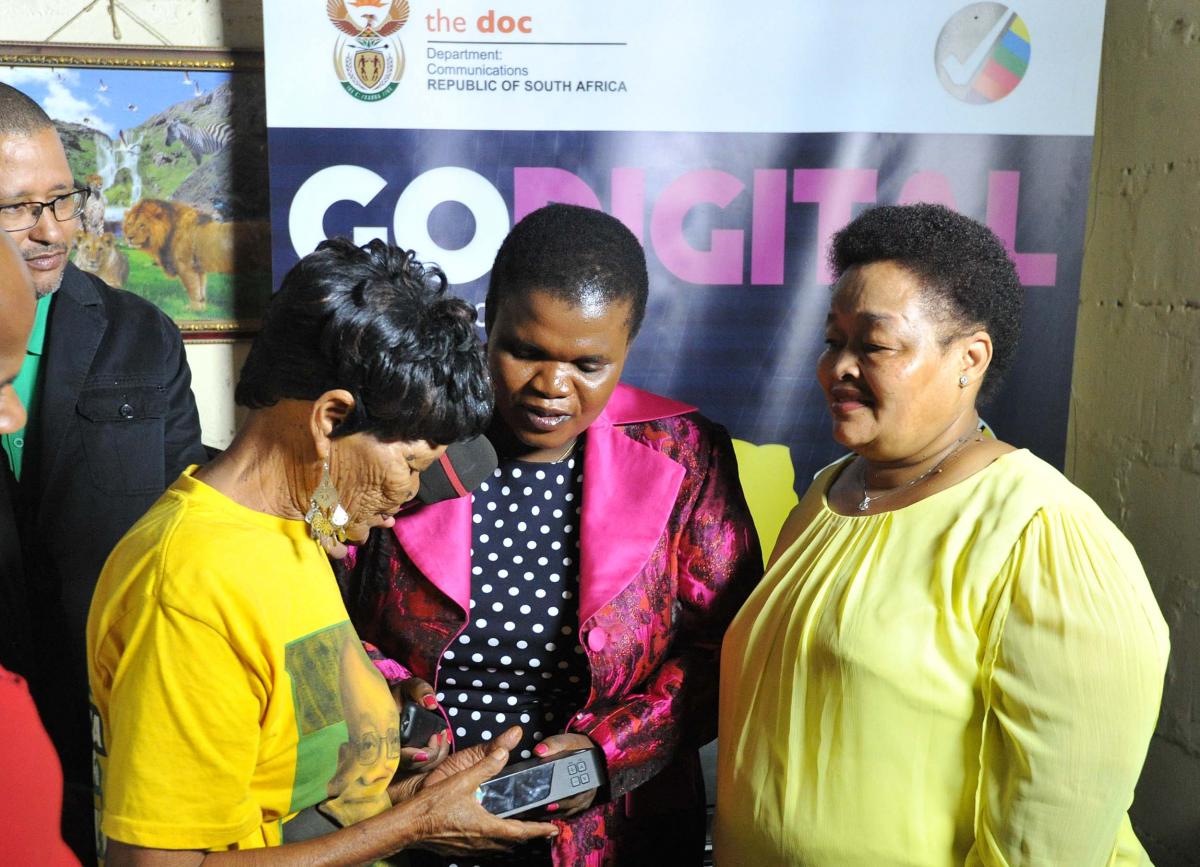
Since the implementation of digital broadcasting, Minister Muthambi signed bilateral agreements with neighbouring countries such as Botswana, Lesotho, Mozambique and Swaziland to mitigate cross border radio frequency interference.
“Since my appointment to this portfolio, I have not only been engaging with the broadcasting sector, but with various other key stakeholders who have a role to play in broadcasting.
Another resident who received a free STB is Florida Cloete of Kakamas said she has not been watching television for many years because of the poor signal.
“Now that digital migration is upon us, I’m able to watch sport, news, health and Parliamentary channels and also access 19 SABC radio stations,” she said.
The Minister said digital migration will also open opportunities.
“Government has made it a criteria that set-top-boxes for Broadcasting Digital Migration be locally manufactured. It will create jobs in manufacturing, installation and maintenance; and in call centres which would support the STBs.
“There will also be broadcasting content development opportunities for the country and the global community, and open up new business and job creation opportunities in the area of content development and television production which local businesses can pursue.”
Let us work together to move SA forward
Let us work together to move SA forward JoyWelcome back to Vuk’uzenzele, and welcome to 2016 as a year of people’s power – a year in which millions of South Africans will once again exercise their fundamental democratic right to choose local government leadership.
Elections are exciting, positive events in the life of our nation; events that allow political parties to test the strength of their ideas and vision with voters, and that allow us as voters to decide how we want to see our lives – and our municipalities – to advance.
However, building a non-racial, non-sexist, democratic and prosperous South Africa call for a national effort that goes beyond the very important tasks of registering as voters, being active campaigners for political parties or active questioners of political candidates, and voting on election day.
Building the South Africa of the future that is anticipated in our Constitution and our National Development Plan calls for participation by all South Africans every single day of every single year.
We must as citizens claim our role in shaping South Africa today and into the future.
Government policies and programmes cannot and do not succeed without citizen participation.
For example, the law on the use of seat belts in vehicles to save lives and reduce injury will mean nothing if citizens don’t belt up and take care to arrive alive as they use vehicles.
Our provision of testing and treatment for people who are HIV-positive will mean nothing if people don’t use the services or facilities provided, or are irresponsible or irregular in taking their treatment.
South Africa has achieved a great deal of transformation and development in 22 short years of democracy and freedom.
Since 1994, each administration, working with social partners and the masses of South Africans who freely and fairly elected national, provincial and local government, has been able to push back the legacy of apartheid and set the country on a new path to inclusive growth and development.
In 2016, the work of building a new South Africa is far from over, but we should not allow anyone in our country or elsewhere to undermine the gains we have made to date.
For example, government has increased investment in early childhood development (ECD) as an investment in the future. To date government spends R1.8 billion on ECD benefitting 948 768 children nationwide. Over 1.5 million children access ECD from 26 000 registered ECD programmes. Government pays a subsidy of R15 per child per day for 264 days of the year.
The National School Nutrition Programme has reached more than nine million learners daily over the past few years, offering nutritious meals to over 20 000 primary, secondary and special schools nationally.
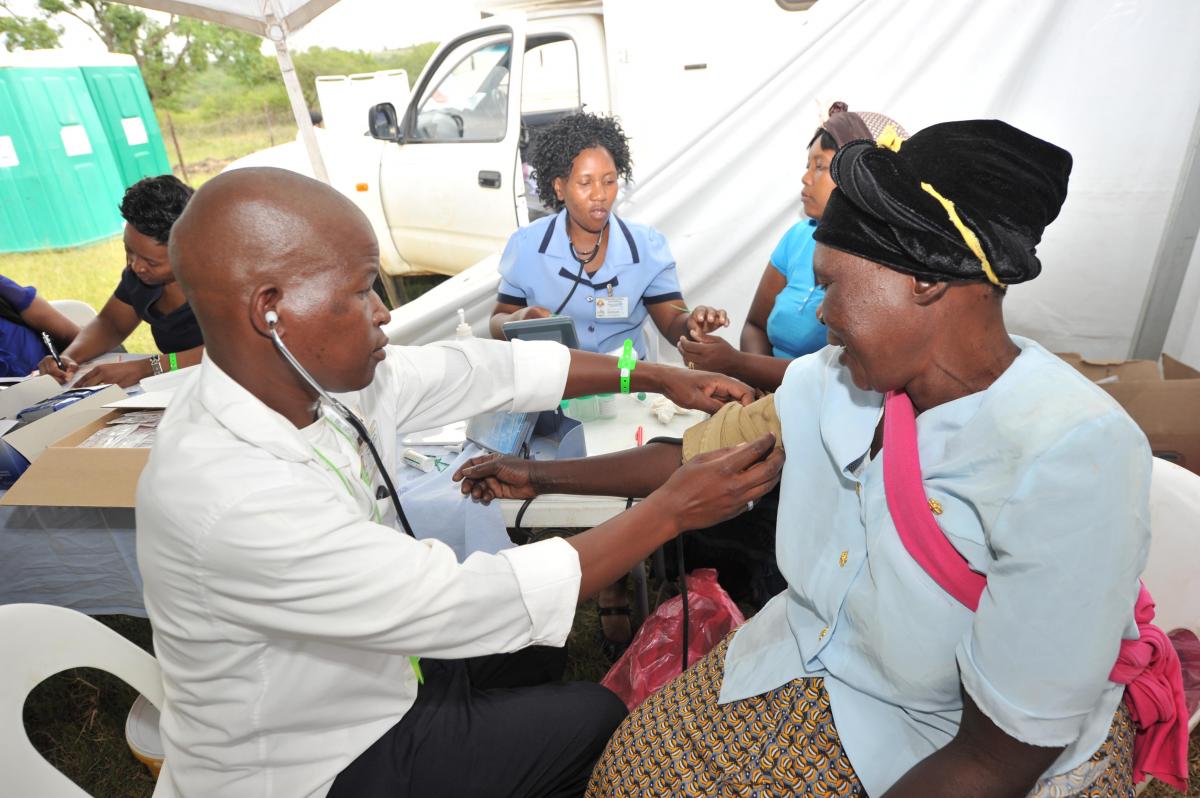
In higher education, the National Student Financial Aid Scheme has awarded approximately R50 billion in loans and bursaries to about 1.5 million students. We are also pleased that student enrolments at all institutions have increased exponentially since 1994.
In terms of health, the life expectancy of South Africans for both males and females has significantly improved and is currently 62 years across genders, which is an increase of 8.5 years since 2005.
Local government is being revitalised through the Back to Basics plan which says the people must be put first.
Some of our challenges arise not from other people but from nature, and with South Africa being one of the 30 driest countries in the world, government is working hard to ensure that our water resources are well managed – not just by government, but by communities and individual households.
It is up to each one of us to work sparingly with water, to fix dripping taps, to let our cars go without a wash every now and then and to be considerate when we irrigate our gardens.
With regard to our economy, which faces a range of challenges brought about by national and international factors, we are implementing a nine-point plan to boost economic growth and creation of jobs.
Our efforts are bearing fruit: in the auto sector, we have seen private-sector investment of over R25,7 billion over the last 5 years. In January 2015 we reported the investment commitments including Mercedes committing to invest (R2.4billion), General Motors (R1 billion), Ford (R3.6 billion), and Metair Group (R400 million).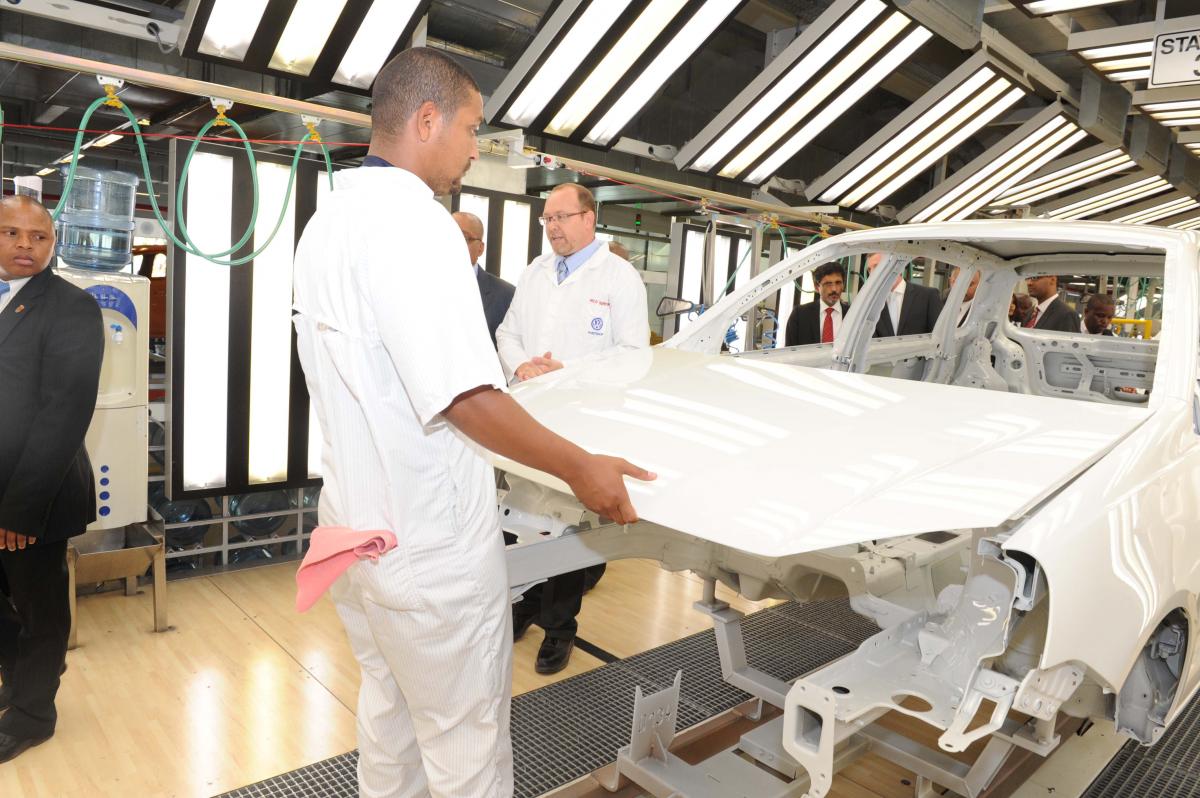
More recently, we have welcomed new investments including BMW committing to invest R6billion in manufacturing the X3 range in its Rosslyn plant; Goodyear R670 million; and VW R4.5 billion.
Unilever has invested R 4 billion in South Africa in new plants and expansions across the country. Multinationals such as Nestle, Samsung, Hisense have also affirmed South Africa as a regional manufacturing hub and have retained and expanded their investments in new plants.
There are many other examples that should strengthen our belief as South Africans that we are moving South Africa forward.
2016 should be a year in which we add to this national effort. Our votes, which we will cast secretly, must help us build a better future, which we will all share publicly.
Let’s get to work!
Be aware of cybercrime
Be aware of cybercrime JoyAs with many countries around the world South Africa is at risk of cybercrime. According to the South African Police Service (SAPS), South Africa lost about R5.8 billion to cybercrime during 2014.
As many as 47 per cent of South Africans who use smartphones have fallen victim to cybercrime.
Internet banking is the number one target of cybercriminals in South Africa.
Cybercrimes are criminal activities carried out by means of computers or the internet.
Computer viruses and malware, online scams and phishing emails are the most common approaches that criminals use to get the personal information needed to commit these crimes.
Between January 2011 and August 2012 there were 90 000 reported cases of people who had fallen victim to phishing e-mails, with R94 million lost from individuals’ pockets.
Phishing emails direct the user to visit a website where they are asked to update personal information, such as a password, credit card, social security or bank account numbers.
The SAPS’s Electronic Crime Unit (ECU) was established in 2011 to address cybercrime and electronic crime.
Brigadier Piet Pieterse, who heads the ECU, said the role of his unit is to crack down on commercial crimes, which include organised crime and corruption platforms.
“There is a variety of digital evidence which represents a key component of police investigations and could prove critical in supporting the prosecution of different types of crimes,” said Brigadier Pieterse.
According to the SAPS cybercrime is no longer about those who seek to access computer systems for fun or to prove that it can be done.
The criminals behind these crimes are organised and take advantage of those using internet services. Whether this is for financial gain or as threats to children, the effects of cybercrime can be devastating and can have a negative impact on the economy.
How to protect yourself:
• Do not download email attachments or click on suspicious links. It can result in information being leaked and sensitive information being distorted.
• Check your Facebook security settings and choose to be notified via SMS or email when someone tries to gain access to your account from an unknown device.
• Beware of fake online job advertisements where your personal details and a photograph are required.
• Organisations must continually monitor network traffic.
• Put a strong password on your mobile phone to help protect your personal data.
• Only download applications from a trustworthy source.
• Use secure payment methods when making purchases from your mobile phone.
South Africans can report cybercrimes anonymously by calling the Crime Stop Call Centre on 08600 10111.
Crime Stop is a national contact centre staffed with well-trained investigative interviewers, who all have at least basic detective training.
*Lt Col Erica Holtzhausen is a member of the SAPS.
Support services for victims of sexual offences
Support services for victims of sexual offences JoyVictims of sexual crimes will now have access to victim-friendly, efficient and sensitive services through the Sexual Offences Courts launched by the Department of Justice and Constitutional Development.
The department recently launched the Durban (KwaZulu-Natal) and Atlantis (Western Cape) Sexual Offences Courts. “The central theme, which underlies much of the department’s work, is to ensure that all people in South Africa are and feel safe,” said Justice and Correctional Services Minister Michael Masutha during the launch of the Atlantis Sexual Offences Court.
The launch of the courts not only forms part of the department’s commitment to access to justice services to the victims of sexual crimes, but also gives effect to the Criminal Law (Sexual Offences and Related Matters) Amendment Act 32 of 2007.
In June 2012 a Ministerial Advisory Task Team was appointed on the Adjudication of Sexual Offences Matters (MATTSO) to investigate the possibility of re-introducing sexual offences courts in the country. In August 2013 MATTSO submitted a recommendation to upgrade 57 regional courts into sexual offences courts over a period of three years.
“Since August 2013 the department has established 43 sexual offences courts, which function to the model recommended by MATTSO. We strive to deliver victim-centred services,” said Minister Masutha.
Sexual offences courts provide specialised victim-support services to avoid secondary victimisation and trauma to the victim of sexual crime, by treating the victim with dignity and ensuring their privacy.
The new model also aims to improve the conviction rates of the sexual crimes and decreases the turnaround time from the date of report to the police to the finalisation of the case.
“The conviction rate relating to sexual offences has also increased and in the first quarter of 2015/16 the National Prosecuting Authority (NPA) indicated a 71.1 per cent conviction rate,” said Minister Masutha.
Durban Sexual Offences Court
Speaking at the launch of the Durban Sexual Offences Court, Director-General Nonkululeko Sindane emphasised that the launch of the court showed the department’s commitment to dealing with violence against vulnerable groups in the society.
Community members are hoping that these courts will help fight the scourge of sexual violence in their communities. Nu Nomthembu from Chersterville in KwaZulu-Natal expressed her concern about the alleged rape of a two-week-old child in 2010.
“We hope that with the help of the Durban Sexual Offences Court the alleged rape case can be followed up,” she said. Director of the NPA in KwaZulu-Natal Advocate Moipone Noko promised to follow up on the case.
Members of civil society and community members are encouraged to work with government to fight sexual violence in communities.
“In order to create safer communities and a safer country government has to rely on the support of civil society. Only through partnerships can we hope to address crime and ensure that our people are and feel safe,” said Minister Masutha.
The new model sexual offences courts offer the following services:
• Court preparation services: The programme familiarises you with court processes, procedures, services and benefits. It aims to help you to be an effective witness in court. On the date of trial, you will be welcomed by the Court Preparation Officer (CPO).
• Intermediary services: If you are a child victim or a person with mental disability, the prosecutor will apply to the court to allow you to testify in a private testifying room with the assistance of an intermediary. An intermediary conveys questions from the court to you in an understandable manner.
• Private waiting rooms for adult and child victims: The child witness room has furniture specifically designed to meet the needs of traumatised children. It also has a play area, reading centre and a bed-sofa for resting. The adult waiting room is also furnished to make the court experience more comfortable for victims.
• Pre- and post- trial trauma debriefing services: The CPO will take you through trial trauma debriefing sessions before the trial commences and once it is concluded, to help you deal with the trauma of the incident.
Private testifying room/closed court services: If you are an adult witness, the law allows you to testify from a private testifying room via a closed-circuit TV system if you feel more comfortable doing so. This ensures that you do not have to be in the physical presence of the accused when testifying.
• Witness fee services: The department provides witness fees to cover your return travelling costs and food while in court.
THUTHUZELA CARE CENTRE FOR ATLANTIS:
As part of victim support services Minister Masutha launched the Atlantis Thuthuzela Care Centre (TCC) at Wesfleur Hospital. Thuthuzela Care Centres are one-stop facilities mainly based within health facilities. They provide a one-stop service centre in which all departments critical to collecting evidence in response to the victim and in preparation of a successful prosecution are based at one place. There are 55 TCC sites providing dedicated services to victims of sexual violence, of which 50 are fully operational, compared to 38 in the previous financial year.
* Sinenhlanhla Mkhwanazi works for the Department of Justice and Constitutional Development.
Pay maintenance or you will be blacklisted
Pay maintenance or you will be blacklisted nthabiParents who don’t pay child maintenance, no longer have a place to hide. President Jacob Zuma recently signed the Maintenance Amendment Act (Act no. 9 of 2015) into law that will ensure that those who default on maintenance payments are blacklisted.
Deputy Minister of Justice and Constitutional Development John Jeffery said the Act allows for the reporting of a maintenance defaulter to a credit granting or credit rating business as well as for the attachment salaries or profits from employer.
The amendment of the Maintenance Act, 1998 has been a major priority of the department and aims at further improving the maintenance system.
“The Department of Justice and Constitutional Development has over the past two decades been committed to ensuring the protection of children in our society.
“One of the areas which has a profound impact on the lives of children is that of maintenance,” said Deputy Minister Jeffery.
He added that the Maintenance Amendment Act amends the Maintenance Act, 1998 (Act No. 9 of 1998) to improve the maintenance system, pending the finalisation of a review of the main Act by the South African Law Reform Commission.
The new Act should not be viewed in isolation he said, as it is part of a wider range of measures, introduced by the department, to bring about real change in service delivery to maintenance beneficiaries.
“These measures have been put in place specifically to ensure that women indeed have better access to justice and access to our courts.”
Electronic Fund Transfer (EFT) system
Deputy Minister Jeffery said the EFT system has improved how maintenance is
paid. The system allows victims to get their money within four days after the department has received the payment.
“Through the EFT system, the department now transfers monies directly into the beneficiaries’ bank accounts.”
“This saves beneficiaries time and money travelling to court to collect these monies. It is also safer. At present, 98 per cent of the beneficiaries are on the EFT system.”
He said those who are not on the EFT system as yet are mostly non-nationals or persons who do not have ID documents required by banking institutions to open a bank account.
The department is continually engaging with the Department of Home Affairs and banking institutions to assist these clients.
“With the direct payment system the court orders, upon consent of the beneficiary, the respondent to deposit maintenance monies directly into the bank account of the beneficiary.”
Maintenance Integrated Case Management
Minister Jeffery said his department had introduced the Maintenance Integrated Case Management System that keeps track of the cases from the registration of the maintenance application to the issuing of the maintenance order.
“This leads to faster delivery of maintenance services as most of the paper work that courts were doing manually is now done electronically.
“Every financial year the department progressively appoints maintenance officers and maintenance investigators to improve service delivery.”
According to the minister, in the past four financial years, the department has increased the human capacity in maintenance services by employing 247 people.
In 2015/2016, additional maintenance officers and investigators will be employed.
The aim is to ensure the provision of adequate human capacity at every service point so as to improve the maintenance system
nationwide.
For more information on maintenance
contact Advocate Mulalo Netshisaulu
at 012 315 1512 or
MNetshisaulu@justice.gov.za.
Child maintenance check list
(1) what the applicant needs to bring to the maintenance office at the magistrates’ court when making an application for child maintenance:
(2) note: bring the following documentation to the maintenance office to make copies and if these
are not available on the date of application please bring the documents on the next day and/or on the hearing date.
(3) unavailability of the documents on the date of application for maintenance should not stop the applicant from completing the j101 application (form a to the maintenance regulation), which is attached to this check list as annexture “b1”.
Documents required for maintenance enquiry/mediation Please tick off
1. An identity book (green book with your photo) or passport or drivers licence and or immigration permit
2. Certified copies of the child/children’s birth certificates
3. Three months bank statement (LATEST)
4. Three months proof of income(payslip) or the signed letter from the employer confirming your income.
5. Physical/work address of the person responsible for paying the maintenance money.
6. List of your income and expenditure e.g. water and lights bill, till slips for groceries, school expenses; medical and travel receipts, clothing accounts, etc.,
7. Full name of parent/person responsible for paying the maintenance money.
8. Copy of Decree of Divorce (in the case of divorce)
After the tick off on the checklist then maintenance supervisor should add his/her signature and date, to ensure all necessary documents will be available
Maintenance supervisor
Signature: ..................................................................................
Date: .........................................................................................
What the respondent needs to bring to court when appearing before the maintenance officer for enquiry/mediation
The respondent is require to bring all the required documents on the date of enquiry:
Documents required for maintenance enquiry/mediation Please tick off
1. An identity book (green book with your photo) or passport or drivers licence and or immigration permit
2. Three months bank statement (Latest)
3. Three months proof of income(payslip) or the signed letter from the employer confirming your income
4. Proof of physical work and residential address
5. List of your expenditure e.g. water and lights bill, till slips for groceries, school expenses; medical and travel receipts, clothing accounts, etc.,
6. Provide the copy of the maintenance court order if there is a maintenance court order against you in another court
7. Birth certificates of all your other biological children other than children in question
NB: the matter will not be postponed because of lack of the above- mentioned documents,
so it is compulsory that the maintenance officer /clerk explain that the parties should
comply with the requirements on the return date.
All you need to know about a will
All you need to know about a will nthabiA way of making sure that loved ones are taken care of when death strikes is drawing up a will.
 A will, also known as a testament, is a document in which a person sets out what must happen to their estate when they die.
A will, also known as a testament, is a document in which a person sets out what must happen to their estate when they die.
You can nominate a person or persons, known as executors, who should administer your estate on your death.
The person who makes a will is known as the testator (male) or a testatrix when referring to female.
“Explaining [a will] in laymen’s terms it can be called a wish list of a person when they die.”
“A will is where a person explains how they want their assets managed or distributed. If you had assets who would you want to benefit from your assets”, said Cecilia Mphela Assistant Master from the Master of the High Court of South Africa in the Gauteng Division which form part of the Department of Justice and Constitutional Development.
The requirements for a valid will
According to the Department of Justice and Constitutional Development since 1 January 1954 a will must be in writing. It can be written by hand, typed, or printed.
The testator or testatrix must sign the will at the end.
The signature of the testator or testatrix must be made in the presence of two or more competent witnesses.
If the will consists of more than one page, each page other than the page on which it ends must be signed by the testator or testatrix or by such other person anywhere on the page.
Although the testator or testatrix must sign all the pages of the will it is only the page on which the will ends, that needs to be signed at the end of the will.
A commissioner of oaths must certify that they are satisfied with the identity of the testator/testatrix and that the will so signed is the will of the testator/testatrix.
The commissioner of oaths must also sign each page of the will, anywhere on the page.
Appointing an executor
Mphela said when drafting a will an opportunity arises to appoint an executor.
“This is a person who will be administering and distributing assets to beneficiaries.”
A person’s estate consists of all their assets belongings, property and liabilities or debts which they had as at date of death.
To administer an estate means to collect or take control of all the assets of the deceased, to pay the debts which the deceased left at date of death, and then to pay the balance for distribution to the rightful heirs of the deceased as determined in the will.
Mphela says when drawing up a will one must be at least 16-years of mentally sound mind and must have two witnesses who are 14-years or older who can testify in a court of law.
“Witnesses need not go through your will. You can draft your own will or have someone draft it for you.”
She added that financial advisors, attorneys, and banks can advice on how to draft a will.
Mphela said that most people prefer using the banks to assist them in drawing up a will, which leads to the bank being the executor of the wills, they have drafted.
“In such instances, the banks will contact the beneficiaries about the will. It is always advisable that people inform their beneficiary that they have a will.”
For enquiries/customer care:
chiefmaster@justice.gov.za ,
Tel: 012 406 4805 Fax: 086 5444 893
Affordable healthcare on the cards for SA
Affordable healthcare on the cards for SA nthabiGovernment is close to implementing the National Health Insurance (NHI), which will ensure that South Africans live long and healthy lives.
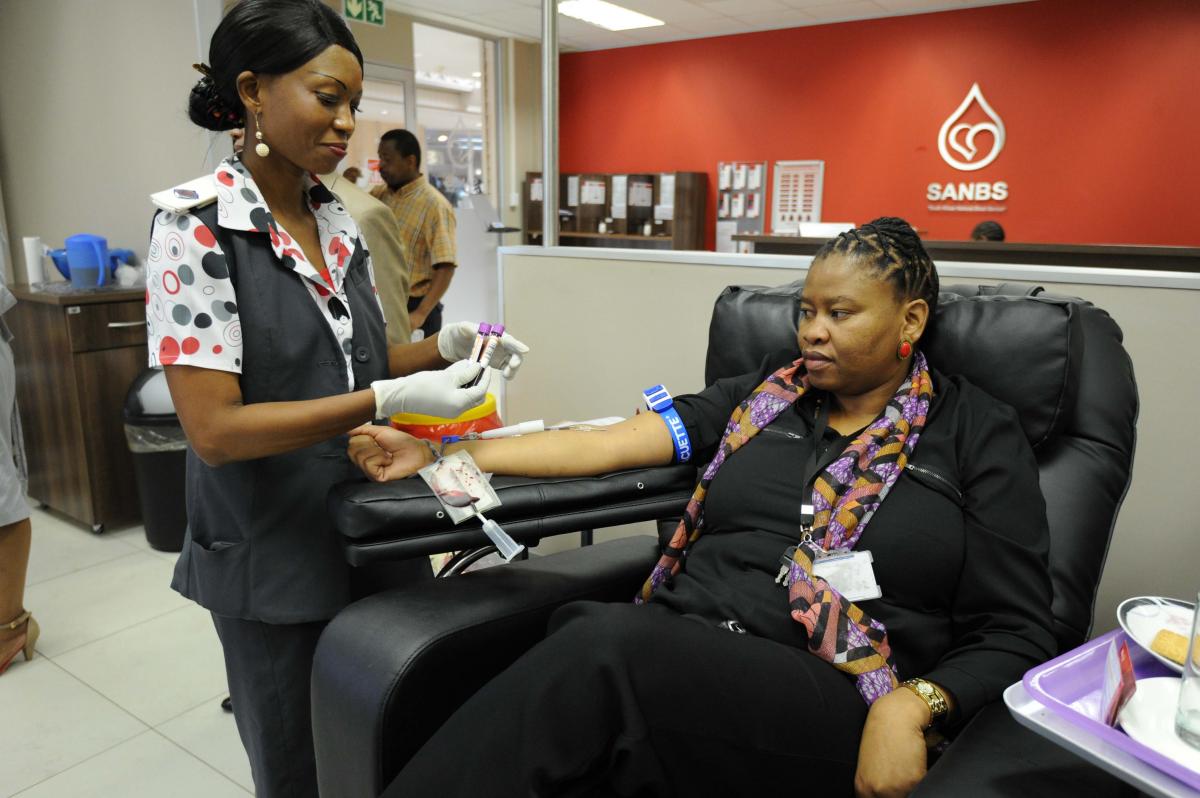 The NHI will cover vulnerable groups, such as women, children, older persons, people with disabilities, orphans, youths and rural populations.
The NHI will cover vulnerable groups, such as women, children, older persons, people with disabilities, orphans, youths and rural populations.
The NHI, a health financing system that is designed to pool funds to provide access to quality, affordable healthcare, is part of government’s major health sector reforms and is being rolled out over a 14-year period.
Cabinet has approved that the national
Department of Health publishes the White Paper on the NHI for public consultation.
A White Paper is a developed document, which states the government’s policy.
The paper was drafted by the Department of Health, and will be discussed in Parliament. Other committees within Parliament may propose amendments.
Before the NHI can be implemented the White Paper must be finalised and there has to be a consultation processes.
The finalised White Paper will be used to inform the drafting of the NHI Bill, which will have to go through both Cabinet and Parliamentary approval before being made law. There will also be a process of public consultation on the NHI Bill.
Speaking about the White Paper, Health Minister Dr Aaron Motsoaledi said it lays the foundation for moving South Africa towards universal health coverage and is in line with the vision of the National Development Plan.
The NHI seeks to transform the financing of the health system, in pursuit of the goal of universal health coverage.
Minister Motsoaledi said the NHI as a major transition in health and said it is going to change healthcare irreversibly.
“It’s going to be a real transition. The transition is not going to be a sprint, it’s going to be an ultra-marathon that takes place for a very long time,” said Minister Motsoaledi.
The White Paper states that the NHI will be implemented over a 14-year period and in three phases.
Implementation
The first phase extends from 2012/13 to 2016/17. Pilots started in 2012 in 10 districts across the country.
This phase has largely focused on improving public health service delivery and strengthening management and governance systems, particularly to improve the quality of health services.
All health facilities will be inspected and certified by the Office of Health Standards Compliance, using agreed upon quality of care norms and standards.
The second phase will extend from 2017/18 to 2019/2021. The population will be registered and issued with a NHI card at designated public facilities, using the unique identifier linked to the Department of Home Affairs.
This phase will focus on work to develop and implement risk identification and a fraud management system.
In the early stages of phase two a transitional fund will be established to purchase primary healthcare services from certified and accredited public and private providers at a non-specialist level.
The third and final phase of implementation will take place over the last four years and will focus on ensuring that the NHI Fund is fully functional.
Protection from financial hardship
Those who are legally entitled to benefit from the NHI will be protected from financial hardship, as they will not have to pay directly at the point of healthcare. Services provided will be paid for through the NHI Fund.
NHI cardholders will not be expected to make any out-of-pocket payments, such as co-payments and user fees at the point of healthcare delivery. This will help to prevent demands for informal payments.
The NHI is based on the principles of the right of all citizens to have access to quality health services that are delivered equitably, affordably, efficiently, effectively and appropriately, based on social solidarity and health as a public good.
NHI coverage
All South Africans will have acccess to the NHI, irrespective of their socio-economic status. Coverage will also extend to legal permanent residents.
By extending effective population coverage, priority will be given to the population that is in greatest need and those who struggle with access to care.
First black female oncologist for KZN
First black female oncologist for KZN nthabiA young KwaZulu-Natal (KZN) doctor has made history. Dr Sithembile Ngidi (31), the daughter of a nurse and a farmer from Gamalakhe in Port Shepstone, made the province proud when she graduated from the Colleges of Medicine South Africa as the province’s first-ever black female oncologist.
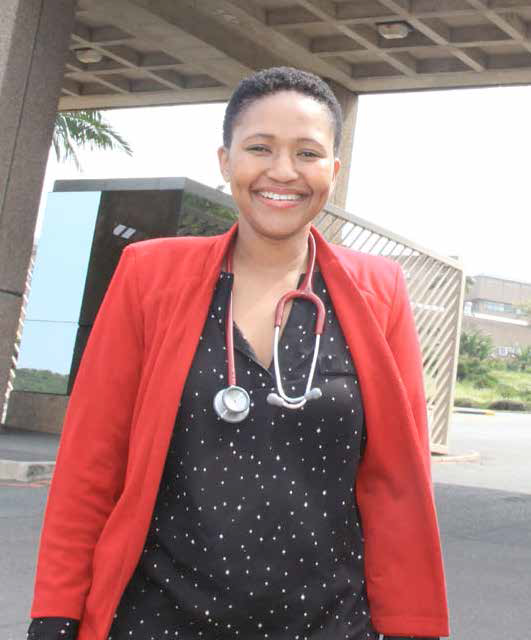 An oncologist is a doctor who specialises in treating people with cancer.
An oncologist is a doctor who specialises in treating people with cancer.
Dr Ngidi, who now works at Inkosi Albert Luthuli Central Hospital, completed her studies through a bursary that she received from the KZN Department of Health.
A self-confessed bookworm and nerd, Dr Ngidi, who got four distinctions in matric, credits the KZN Department of Health for her success.
“I had academic colours in high school. I applied for a bursary with the KZN Department of Health. That was a huge relief as I got sponsored to fulfill my dreams.
“I’m a specialist today because I got a helping hand from the department. I believe that people need to know that these opportunities do exist,” said Dr Ngidi.
After completing matric, she studied medicine at the University of KwaZulu-Natal’s Nelson Mandela School of Medicine from 2002 until 2006.
She then completed her two-year internship, followed by one year of community service. She then worked as a medical officer at the ARV clinic at the KwaMashu Polyclinic in 2010. She obtained a medical officer post in oncology later that year. In 2012, she got a registrar post at Inkosi Albert Luthuli Central Hospital in radiation oncology.
The mother of two believes that healthy lifestyles and regular health screenings help to lessen the impact of non-communicable diseases such as cancer.
“It concerns me that too many people tend to come too late to get a health check-up. Some are embarrassed to seek healthcare due to stigma. So what we always preach is that if you feel a lump, don’t waste any time, get it checked.”
She also attributes her success to nothing less than sheer hard work and having a plan and sticking to it.
“It’s always good to know from the word go what you want in your life. My parents taught me that you can accomplish any goal, so long as you put your mind to it. I thought to myself, there’s no black female oncologist in KZN. That’s where I want to be,” she said.
Dr Ngidi has her sights set on completing her Masters in Radiation Oncology next year. She hopes her life story will inspire others who might want to follow in her footsteps.
Her advice to the youth is not to be afraid and to work hard to achieve their dreams.
“Nothing comes easy. You need to be prepared to work for it. If you want to be a doctor, study hard, and pick the right subjects. You must have goals and dreams. For me, that’s the essence of life,” she said.
KZN MEC for Health, Dr Sibongiseni Dhlomo, congratulated Dr Ngidi on her achievement.
“Educating a girl child is such an investment for the country but for Dr Ngidi, it is even more special. She is the first female oncologist in the province and second in the country.
“Our province will be placed in a unique position with this achievement. As the
Department of Health and KZN government, we are proud of her achievements and we would do anything to support and to see her dream achieved.”
Steel creating opportunities in Mpumalanga
Steel creating opportunities in Mpumalanga nthabiIf you’ve got a passion for making steel products or have an interest in learning more about fabrication of stainless steel, the Mpumalanga Stainless Steel Initiative (MSI) is the right place for you.
 The MSI is an initiative of the Department of Economic Development and Tourism in Mpumalanga and is funded the Small Enterprise Agency Development (SEDA).
The MSI is an initiative of the Department of Economic Development and Tourism in Mpumalanga and is funded the Small Enterprise Agency Development (SEDA).
Established in 2002, the MSI aims to create an environment where new and emerging enterprises are able to set-up businesses, create jobs and with professional support and development, become sustainable in the long-term.
It provides entrepreneurs from previously disadvantaged backgrounds with the opportunity to enter the stainless steel industry.
Acting Centre Manager Sydney Chauke said since opening its doors 13 years ago, the centre has grown in leaps and bounds.
“Our models have changed and the model we use currently is not the same as the ones that was used when the centre started.”
Since opening its doors, it has trained 90 students in new venture creation and 82 of the 90 completed the programme. Thirty-two students trained in Metal Sheet Fabrication and 18 started their own businesses.
Currently, the centre has 60 students. Of these 15 are graduated clients, 25 are small business owners in incubation and 20 are projects that are not yet SMMEs.
In an effort to support the businesses at the centre, the department has approached the Department of Human Settlements to buy items such as doors and window frames from the small businesses.
Business Coordinator from the Department of Economic Development and Tourism, Bheki Mkhabela, said discussions with the Department of Human Settlement were at an advanced stage.
“Apart from giving them support, we have already spoken to the department that they should procure window and door frames from the graduates at the centre for the RDP houses that they are going to build in the province.
“We believe this will go a long way in helping them to grow their businesses and enter the market.”
One of the students who graduated from the centre is Timothy Magoro, whose passion for steel started at a young age.
“I was always playing with things made from steel, it was either I was fixing things or just creating things with my hands using steel,” he said.
He left his job at a national steel producer to start his small steel production company. He got his training from the MSI and today his company, Replica Steels Fabrication, employs four employees and specialises in stainless steel products.
He does fryers and extraction systems, both used in restaurants, as well as braai stands, trailers, mobile toilets and kitchens.
The business has been going on for just over a year. “I started operating in March 2014 and so far it has been good though there are challenges, but I’m prepared to deal with them.”
He said with the assistance from the centre, he hopes to grow his business and open other branches in other parts of the country.
The Mpumalanga Stainless Steel Initiative can be contacted on: 013 246 1528
Skills programme empowers rural youth
Skills programme empowers rural youth nthabiThe lives of more than 50 young people from the rural areas of Pongolo and Nongoma in KwaZulu-Natal (KZN) will change for the better after they received training from the Siyazenzela Youth Development Programme.
 Siyazenzela is an initiative of the KZN Department of Education that aims to equip unemployed youth with skills that will enable them to provide for themselves and their families.
Siyazenzela is an initiative of the KZN Department of Education that aims to equip unemployed youth with skills that will enable them to provide for themselves and their families.
Speaking at the graduation ceremony held recently, KZN MEC of Education Neliswa Nkonyeni said the programme responds directly to the needs of the economy.
“We are determined to see our youth taking charge not only of their future, but being active participants in the growth and development of the province’s economy. These young people were trained in a variety of skills, including plumbing, plastering, carpentry, roofing, painting, glazing, floor plastering and tiling, welding, electrical and fencing,” she said.
MEC Nkonyeni said now that they have completed their skills development programme, the youth have been recruited by the Department of Education to work in KZN schools.
“The skills acquired by these youth will be used to refurbish our schools. We’ve discovered that there are 308 non-facebrick schools in Pongolo and Nongoma. These schools will be the sites on which the beneficiaries of the programme will be working,” she said.
MEC Nkonyeni said the 51 graduates started working at these schools in January 2016. They were provided with protective clothing, tools and vehicles bought by the Department of Education.
The MEC said the department would continue to provide the people of KZN with school infrastructure.
“Already we have spent over R2, 636 billion in the past 10 years on a variety of projects in the Zululand district alone. Indeed, many schools are now way better than they were in the past,” said MEC Nkonyeni.
One the beneficiaries, Nombulelo Mkhize, thanked the department for giving them these skills. “I heard about the opportunity from my ward councillor. I was sitting helpless at home without a job,” she said, adding that she has now been given the opportunity to provide for her family.
Another beneficiary, Nozipho Khuzwayo, said she was trained in carpentry, a course that took two months.
“I will now be responsible for repairing school furniture or making new furniture if there is a need. I will use my first salary to buy my mother a new bed,” she said, adding that the benefits of the programme were already felt by her family during training, because trainees were paid a monthly stipend of R1 500.
MEC Nkonyeni encouraged the graduates to use the opportunity given to them wisely.
“I urge all of you to stay focussed and to follow your dreams. The Department of Education will continue to support all the initiatives that seek to develop the youth of KZN. We wish you all the best and hope that you will be outstanding ambassadors of the Siyazenzela Youth Development Programme.”
Know Your Ministers
Know Your Ministers nthabiMinister Faith Muthambi
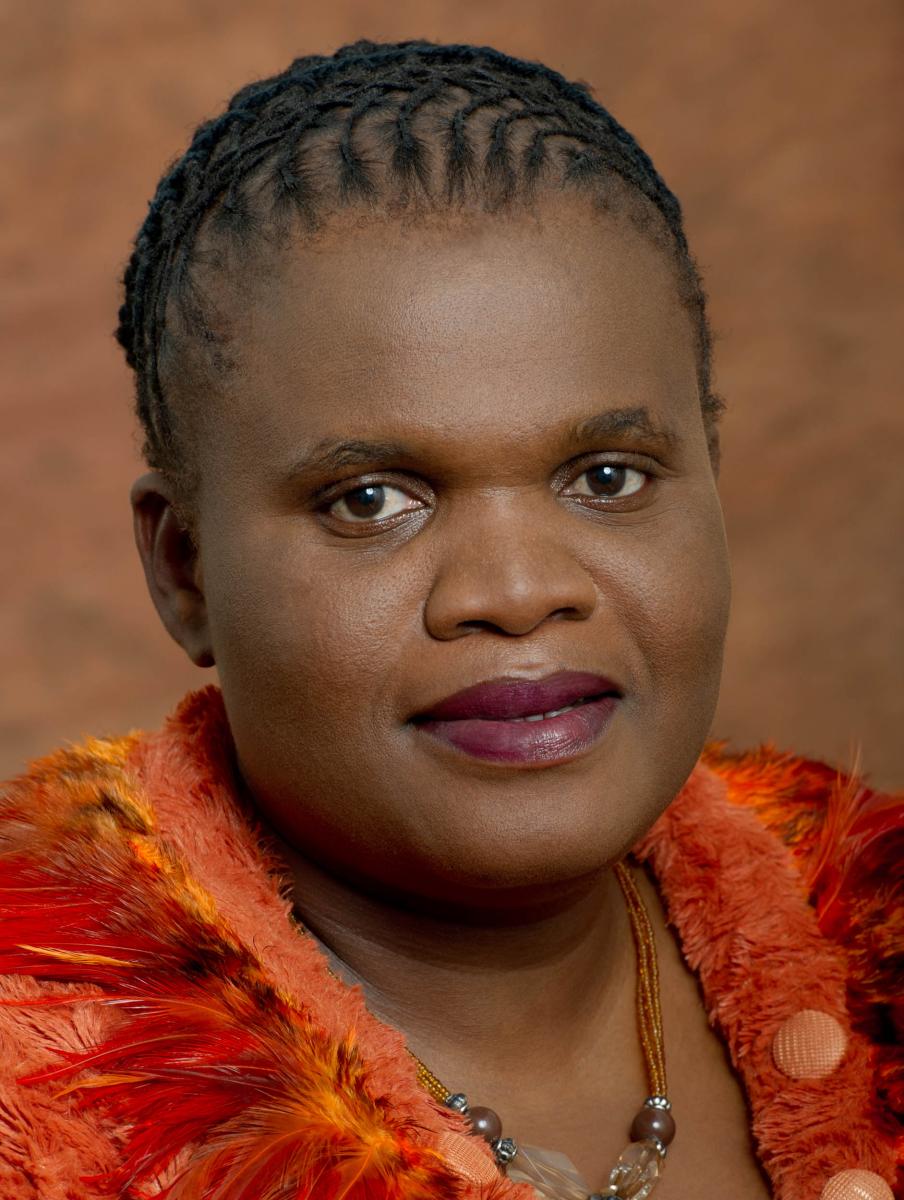 Minister Faith Muthambi is the Minister of Communications. The Department of Communications is a new department that came into being on 25 May 2014 after government reconfigured departments in line with the new mandate.
Minister Faith Muthambi is the Minister of Communications. The Department of Communications is a new department that came into being on 25 May 2014 after government reconfigured departments in line with the new mandate.
About the department
The department has various entities reporting to it including Independent Communications Authority of South Africa (ICASA), South African Broadcasting Corporation (SABC), Brand SA; Media Development Diversity Agency, and the Film and Publication Board.
The department is responsible for providing communication services and creating an environment for the provision of inclusive communication services to all South Africans in a manner that promotes socio-economic development and investment through broadcasting, new media, print media and other new technologies, and brand the country locally and internationally.
About the minister
Minister Muthambi holds a BProc degree from the University of Venda, which she obtained in 1996. She completed her Attorney's Admission Exam in 2000. She is an admitted attorney of the High Court of South Africa, a member of the Black Lawyers Association and of the South African Women Lawyers Association.
Her other string of qualifications include a Certificate in Computer Training, Certificate in Executive Leadership in Municipality Development Programme, Certificate in Project Management, Certificate in Fraud Examination, Programme in Municipal Finance Development, Certificate in Sports Law and Certificate in Leadership Development.
Minister David van Rooyen
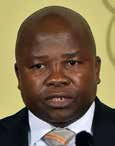 David van Rooyen is the Minister of Cooperative Governance and Traditional Affairs. He took over from Pravin Gordhan who have since taken over as Minister of Finance. He took over from Minister Gordhan in December of 2015.
David van Rooyen is the Minister of Cooperative Governance and Traditional Affairs. He took over from Pravin Gordhan who have since taken over as Minister of Finance. He took over from Minister Gordhan in December of 2015.
About the department
The Department of Cooperative Governance and Traditional Affairs is responsible for facilitating cooperative governance and support all spheres of government, promote traditional affairs and support associated institutions.
About the minister
Minister van Rooyen holds an Advance Business Management Diploma, Diploma in Municipal Governance, Certificate in Municipal Governance, Certificate in Councillor Development, Certificate in Municipal Finance, Certificate in Economic & Public Finance and Master’s Degree in Public Development and Management.
Building decent houses for communities
Building decent houses for communities nthabiIn an effort to address the backlog of housing in Limpopo, the Department of Cooperative Governance, Human Settlements and Traditional Affairs (Coghsta) has demolished old houses and built new ones for the Seshego community.
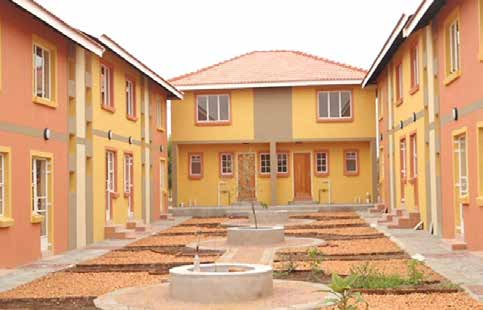 The department has built 189 Community Residential Units (CRU) in Seshego Township, outside Polokwane. These units are in ward 37 of the Polokwane Local Municipality.
The department has built 189 Community Residential Units (CRU) in Seshego Township, outside Polokwane. These units are in ward 37 of the Polokwane Local Municipality.
The department said before the units were constructed, it consulted with the communities to find out the type of units they would prefer.
“Extensive consultations and surveys were conducted with the stakeholders before the units were constructed. The concept of higher density double storey two-bedroom units allows for sharing between two tenants or family living,” said the department.
According to the department, the units will only be occupied by people in the low-income bracket and will have low rentals. The rental amount will vary based on the size of the unit.
“It targets beneficiaries with an income of up to R3 500. The rentals are expected to be R400 for a one-bedroom unit and R800 for a two-bedroom unit,” it added.
The Seshego CRUs in ward 37 are made up of 167 two-bedroom units, four units fitted with ramps for people with disabilites, four single-room units and nine live-work units.
The CRUs will also have modern facilities such as a clinic, two shops, 78 parking bays, a recreation centre and play area.
“The project has not only provided decent homes, but also created much-need job opportunities for the community, employing 245 skilled and unskilled labourers, comprised of 146 men, 59 women and 40 youth,” said the 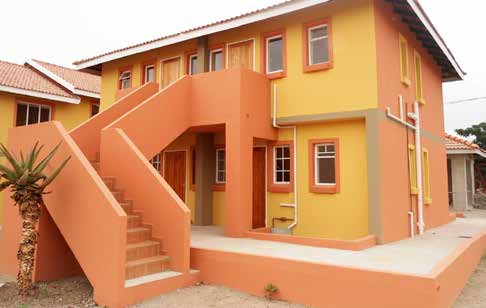 department.
department.
Soup kitchens improve quality of life
Soup kitchens improve quality of life nthabiThe eThekwini Municipality has decided to grow its soup kitchen programme from 36 to 54 kitchens, in a move that will feed over 27 000 people per day.
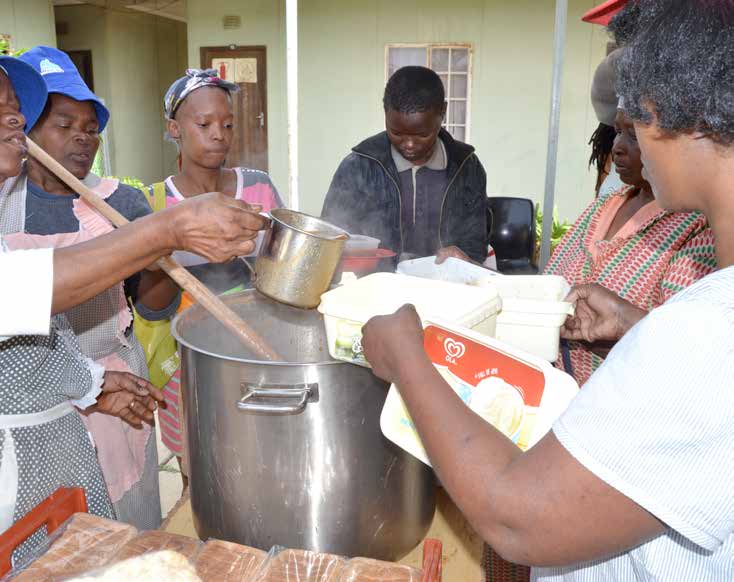 The soup kitchens were started to reduce the impact of poverty and improve the quality of life of all people in the province.
The soup kitchens were started to reduce the impact of poverty and improve the quality of life of all people in the province.
Governance and Human Resources Committee Councillor Chairperson Nondumiso Cele told Vuk’uzenzele that the municipality decided to expand the programme to meet the needs of the communities.
“This programme is in line with eThekwini’s vision of being Africa’s most caring city by 2030. Expanding the number of kitchens is a key priority of the city to guarantee access to food for everyone. In 2014 the soup programme served 16 000 beneficiaries per day,” she said.
Cele added that as the number of kitchens was expanding more hands would be needed. This will mean job opportunities for people.
“We encourage unemployed youth and adults from our communities to come forward to help with daily soup kitchen operations. They will be paid R75 per day. Most of these soup kitchens are located within council premises, such as community halls, Sizakala Centres and councillors’ offices. They operate five days a week, from Monday to Friday. This is to ensure that resources are kept in a secure environment and are properly maintained,” she said.
Cele said health and safety officials in the programme from other council departments are involved in the programme to provide guidance in terms of soup kitchen food, menu and hygiene requirements. Community health workers and home-based care workers also monitor and advise patients receiving meals from the soup kitchen.
Nozithinta Kheswa (39), who lives in KwaMashu, said the municipality has shown that it cares for its people.
“I used to take my Tuberculosis (TB) treatment on an empty stomach because I had no food in my shack. As a result I defaulted on my medication. The soup kitchen has helped me a lot because I get something to eat every day because I am still taking my medication,” she said.
Another beneficiary Msawenkosi Dimba (57) said he gets his meal for the day from the soup kitchen on days when he does not get a “piece” job.
“We thank the municipality for providing us with proper meals. Who knows, maybe I would be eating from the dustbin if they didn’t come up with this programme,” he said.
Cele said this programme has managed to recruit 271 volunteers who help in the kitchens and 37 drivers who help to transport beneficiaries who live from the kitchens.
“These people are vital to the provision of much-needed sustenance to impoverished members of our communities,” Cele concluded
If you are interested in becoming a volunteer call 031 311 4826.
Free Wi-Fi for Ekurhuleni residents
Free Wi-Fi for Ekurhuleni residents lebangThe City of Ekurhuleni is on a mission to become a smart city after recently launching free Wi-Fi. Wi-Fi is a local area wireless computer networking technology that allows electronic devices to connect to the network.
 The city’s fibre and Wi-Fi expansion plans have already been defined and are being rolled out over a period of three years, from 2015 to 2017, at a cost of over R120 million. A total of R25 million has already been spent.
The city’s fibre and Wi-Fi expansion plans have already been defined and are being rolled out over a period of three years, from 2015 to 2017, at a cost of over R120 million. A total of R25 million has already been spent.
City of Ekurhuleni ICT Business Relations Management Divisional Head Lydia Ntlhophi said that the Wi-Fi would be well received by students.
“University students were forced to travel to the city to access internet, now they will access it closer to their homes.”
The remaining 530 sites and 3 000 hotspots are expected to be up and running before the deadline of 2017.
City of Ekurhuleni Mayor Mondli Gungubele said the city had other ICT related innovations.
“As we speak, over 40 of our clinics now boast e-health services which is an innovation that does away with the clandestine patient filing systems, replacing it with digital services that only require an identity document to reveal a patient’s medical history.”
Mayor Gungubele said the metro had also introduced innovations, such as e-Siyakhokha, a tool that has helped and continues to help ratepayers to pay for services online, without having to leaving the comfort of their homes.
Gungubele urged learners and the community to take full advantage of their new access to the internet. The access will help learners with their school work.
The City of Ekurhuleni follows in the steps of the City of Tshwane, which also provides free Wi-Fi to its residents.
The Tshwane free Wi-Fi service is the largest government-funded, public free Wi-Fi in South Africa and has enabled over one million unique users to get online since it launched in November 2013, logging over 40.4 million connections to date.
The project recently hit a ground-breaking milestone when one million people were able to receive unique connections free from the Wi-Fi project.
The Executive Mayor of Tshwane, Councillor Kgosientso Ramokgopa, said that through free Wi-Fi the city’s youth are now able to communicate with the city and provide meaningful feedback at the touch of a button.
Ramokgopa was speaking at another technological breakthrough by the city when he unveiled the first phase of the Namola App.
This is an innovative crime fighting solution that helps Tshwane Metro Police Department (TMPD) officers respond faster to crime scenes.
The app is a software solution, designed for the Tshwane Metro Police Department, which links officers on the ground and the control room, promotes police accountability and performance and gives citizens a direct link to their nearest police officers.
The introduction of the app means that the average dispatch times are reduced from two minutes and 38 seconds to 11 seconds, a 13 times improvement.
Tablets installed into TMPD patrol vehicles create a parallel communication channel between the control room and officers on the ground.
SA ready for local government elections
SA ready for local government elections lebangIt’s all systems go for the 2016 Local Government Elections. This is according to the Independent Electoral Commission’s (IEC) Chief Electoral Commissioner Mosotho Moepya.
The 2016 municipal elections were officially launched in Midrand last month.
Every five years South Africa holds the Local Government Elections. Local government is made up of municipalities, which are run by councils.
“Given the level of discussions in the country, there will be increase in the turnout. We will prepare for every registered voter and we hope they will come,” said Moepya.
There are currently 25 million registered voters against a voting age population currently estimated at about 34.1 million by Statistics South Africa.
Of the approximately 9.1 million eligible voters who are not registered, more than 80 per cent are under 35 years old.
An interactive digital game (IXSA) in which voters must register and vote - first developed for the 2014 national elections - has been enhanced and updated for the 2016 Municipal Elections and is available for download free from the Apple and Android app stores. This is aimed at encouraging youth participation in particular.
“Elections are an opportunity for the youth to participate,” said Moepya.
The IEC expects to have 22,600 voting stations across the country, an increase from just over 20,000 in 2011.
Although the election date has not been officially announced, South Africans must go out in their numbers to either register or to confirm their details.
Finding your correct voting station
All eligible voters (South African citizens aged 18 or older) should ensure they are registered in the correct voting district where they ordinarily live. Unlike national and provincial elections, voting in a municipal election is only allowed at the voting district in which you are registered to vote.
Voters who are already registered can SMS their ID number to 32810 (cost R1) to receive confirmation of their voter registration details including the name of their voting station.
Voters need to take with them their green barcoded ID book, smart ID card or a valid temporary ID certificate to the voting station. No other forms of ID are accepted for voter registration.
Register to vote in the 2016 Municipal Elections on 5 and 6 March 2016. All voting stations will open from 8am to 5pm over the weekend of Saturday 5 March and Sunday 6 March.
There are a number of ways voters can find their correct voting station:
- Call the Electoral Commission Contact Centre on 0800 11 8000 between 7am and 9pm weekdays.
- Use the voting station finder app on the IEC website at www.elections.org.za
- Dial *120*IEC# (*120*432#)
It’s important for voters to vote where they live. The IEC has emphasised to and reminds all voters that that it is a criminal offence to knowingly register in a voting district in which the voter is not ordinarily resident.
What is the difference between national, provincial elections and municipal elections?
In national elections you vote for members of Parliament and in provincial elections (held on the same day as national elections) you vote for members of the provincial legislature. In municipal elections you are voting for city or town councillors who will run your town council for the next five years.
 In national and provincial elections, you vote for a political party (Proportional Representative or PR electoral system) to get seats in the national and provincial legislatures. In municipal elections, you vote for a political party and a ward councillor (a mixed system of PR and ward constituency to get seats at the municipal level).
In national and provincial elections, you vote for a political party (Proportional Representative or PR electoral system) to get seats in the national and provincial legislatures. In municipal elections, you vote for a political party and a ward councillor (a mixed system of PR and ward constituency to get seats at the municipal level).
Did you know
Almost 1 700 education fieldworkers have been deployed across all municipalities for voter education initiatives. A further number of approximately 50 000 temporary registration officials have been recruited and trained to staff voting stations for the registration weekend.
Phokwane municipality goes back to basics
Phokwane municipality goes back to basics lebangIn 2014 government launched the “Back to Basics” (B2B) programme to improve South Africans' access to clean water, proper sanitation, electricity and safer roads, amongst other things.
Since then municipalities across the country have used the programme to improve people’s lives. One example is the Phokwane Municipality in the Northern Cape.
Before implementing the programme the municipality experienced a number of challenges including receiving seven consecutive disclaimer audit opinions in previous financial years and the prevalence of a culture of non-compliance with supply chain management processes and other regulations.
To turn things around Acting Municipal Manager Bafedile Shadrack focused on improving the B2B pillar of sound financial management.
The municipality took a number of practical steps that led to a change in the way it functioned in the areas of corporate services, finance and supply chain management, human settlements and infrastructure and operations and maintenance.
Among the problems encountered were service delivery and the Budget Implementation Plan.
Since the implementation of the B2B programme, there has been an improvement in the services offered by the municipality and in the way that various stakeholders interact with the municipality.
The community of Phokwane, service providers, contractors, recognised labour unions and municipal employees have gained confidence and trust in the new leadership, both administratively and politically.
In keeping with the B2B pillar of Putting People First there is two-way communication between the office of the Mayor, AMM , councillors and community on a 24/7 basis, which addresses the challenges facing the community.
Senior managers intervene on service delivery matters and regularly provide feedback to complainants about progress made on their issues. The municipality also introduced a cleaning campaign, an initiative that sees the community coming together to clean up parks and business areas.
The B2B programme has changed the way the Phokwane Municipality addressed its challenges, providing it with clear guidelines on how to address them now and in future.
Pop-up classrooms provide quick access to eLearning
Pop-up classrooms provide quick access to eLearning lebangChildren in the Western Cape will be receiving teaching and learning in pop-up classrooms.
This was after JP-IK (Pty) Ltd donated the classrooms to the Western Cape Education Department (WCED) for evaluation.
The donation is worth R1.2 million at R400 000 per classroom. The classrooms take about a day to erect.
JP-IK (Pty) Ltd is an international supplier of eLearning systems and has donated three technology-enabled, pop-up classrooms to support the Western Cape's eLearning initiatives.
Debbie Schäfer, the Western Cape Education MEC, received the donation on behalf of the department at an official handover ceremony held at Factreton Primary School in Maitland East recently.
The schools benefitting from the donation are Factreton Primary, Melton Primary in Eerste River and Rouxville Primary in Kuils River.
MEC Schäfer said that the donation reflected the commitment of the Western Cape Government to work in partnership with the private sector and civil society to ensure an enabling environment for eLearning.
The modular design allows for speedy construction and quick access to education technology. Each classroom includes:
- An interactive white board.
- A projector and stand.
- A teacher computer.
- 30 x two-in-one Wi-Fi-enabled devices, desks and chairs.
The WCED's Cape Teaching and Leadership Institute and the Metro East Education District will also use the classrooms at Melton and Rouxville for teacher training and support.
The Western Cape Government is investing in eLearning as a game-changer that will improve access to quality education in all communities.
Key parts of the eLearning programme include high-speed broadband access, via a Wide Area Network (WAN) across the whole province, and Local Area Networks in schools connected to the WAN.
The WCED is developing an eLearning portal to provide access to the best possible digital materials for teaching and learning.
The Western Cape government will invest R3.8 billion over the next 10 years to bring high-speed broadband to all residents of the Western Cape.
Schools are the province’s first priority. The Western Cape government will invest R2 billion of the total investment on connectivity at schools.
Contractors will lay 581 km of fibre optic cabling by the end of 2016, alongside 1 251 km of cabling already installed.
The WCED has established 4 267 smart classrooms over the past two years in addition to refreshing computer laboratories.
The programme will also focus on teacher training and support.
Public-private partnerships will play a key role in ensuring the success of eLearning, MEC Schäfer said.
"We are blessed with a great many people of goodwill in the Western Cape, who are keen to give of their time and resources and make a difference in the lives of young people of the province."
"We are open to all good ideas and to working with like-minded organisations to make education better together in the Western Cape."
* Jessica Shelver works for the WCED.
Ensuring safety in schools
Ensuring safety in schools lebangThe Department of Education in Gauteng, in partnership with the South African Police Service (SAPS) and the Gauteng Department of Community Safety, will work closely to make sure that learners in Gauteng schools are safe.
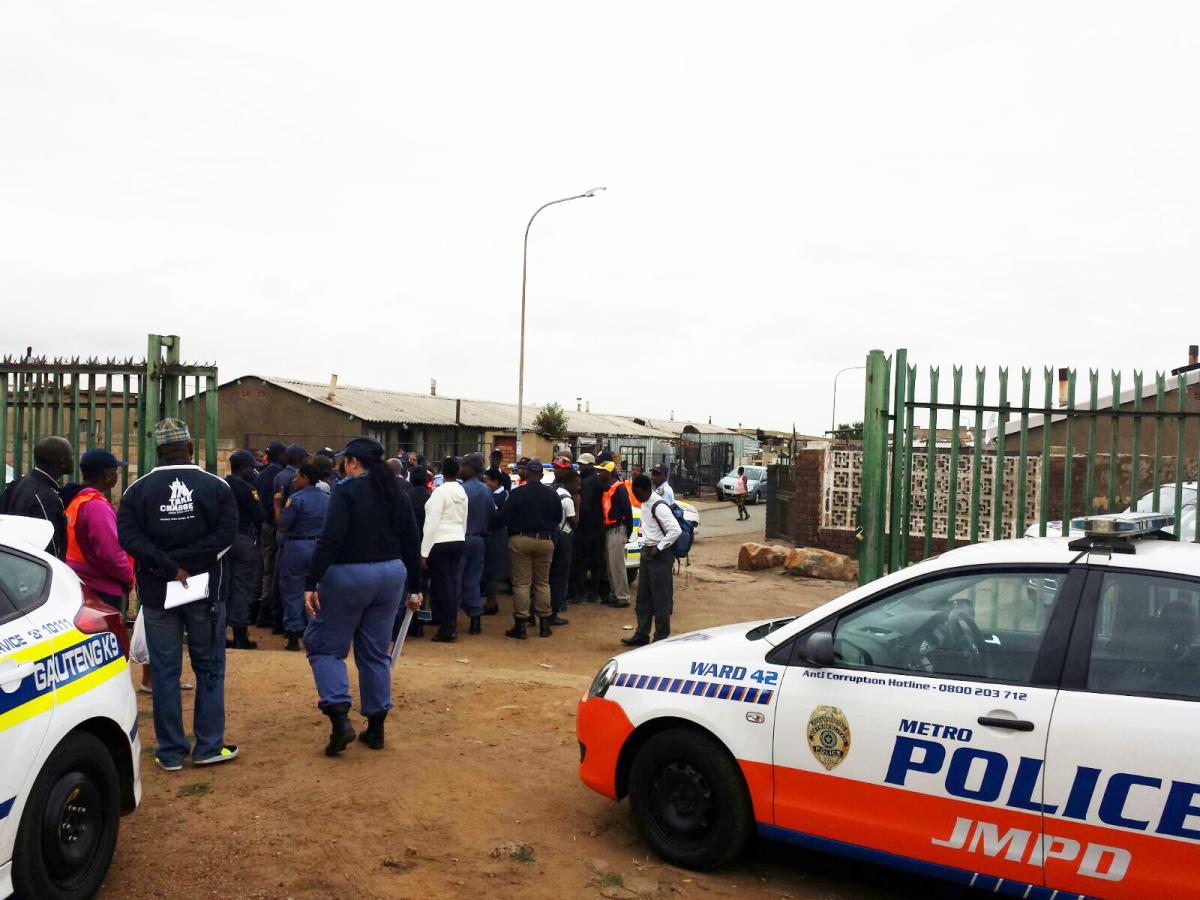 Spokesperson for the department Phumla Sekhonyane said the partnership between the SAPS is part of the School Safety Strategy.
Spokesperson for the department Phumla Sekhonyane said the partnership between the SAPS is part of the School Safety Strategy.
“As part of the School Safety Strategy, the Gauteng Department of Education in partnership with the Gauteng Department of Community Safety and SAPS has linked all Gauteng schools with their respective local police stations through the assignment of a police officer to each school and the additional support of a police sector vehicle allocated to precincts within which each school falls.”
Sekhonyane added that in most cases the level of violence in schools was a reflection of challenges faced by society and had to be addressed jointly by government and communities.
“The department recognises that education is a societal issue and that schools are a microcosm of local communities where local challenges such as violence, alcohol and drug abuse are reflected and ultimately impact negatively on the achievement of quality basic education.”
In instances where schools experience cases of violence and ill-discipline, there is communication with the parents and both victims and perpetrators are given support.
“Cases of violence are acted on immediately; parents are informed of an incident, perpetrators go through a disciplinary process and appropriate sanction is recommended. In most cases, psychosocial support is provided to both victims and perpetrators,” said Sekhonyane.
Added to this, the department also has other steps to deal with ill-discipline and violence in schools.
These include the deployment of patrollers at no-fee paying high-risk schools, equipping school safety committees, fencing schools with weak or compromised fencing to promote effective access control, helping all public schools to develop standardised and compliant school safety policies, developing a programme to fight gangsterism in schools and developing an Anti-Bullying policy exemplar for schools to develop their own customised one for implementation in their schools.
With regard to the department’s role in fighting drugs at schools:
- The department encourages schools to develop policies to assist with curbing substance abuse.
- School Based Support Teams are equppied to identify different types of drugs and the various symptoms.
- Educators in high-risk areas have been trained in general skills to manage substance abuse in schools.
- Substance abuse is incorporated into the curriculum through Life Orientation. Peer support groups like the Girl Empowerment Movement and Boy Empowerment Movement have also been introduced at secondary schools.
Extra hands to help out at PE schools
Extra hands to help out at PE schools lebang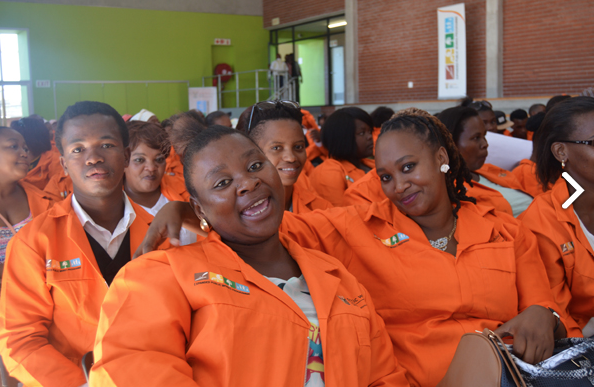 Public Works Deputy Minister Jeremy Cronin said the appointment of 330 Expanded Public Works Programme (EPWP) non-teaching staff at 209 schools across Nelson Mandela Bay will help stabilise schools in the municipality.
Public Works Deputy Minister Jeremy Cronin said the appointment of 330 Expanded Public Works Programme (EPWP) non-teaching staff at 209 schools across Nelson Mandela Bay will help stabilise schools in the municipality.
The move, the Deputy Minister said, will also alleviate poverty and unemployment in the metro.
Deputy Minister Cronin launched the EPWP Metro-wide Schools Ambassadors Programme at Helevale Recreational
Centre in Port Elizabeth, Eastern Cape.
The programme is an initiative of the Department of Public Works, Nelson Mandela Bay Metropolitan Municipality, Eastern Cape Department of Education, as well as the Independent Development Trust (IDT).
“The participants will be responsible for a range of duties at schools, including providing general maintenance work, cleaning, providing security and general administration work.
“The programme is critical as it will ensure that teachers no longer have to perform administrative work that takes them away from their core teaching duties. It will also ensure that the process of learning and teaching occurs in a safer environment,” Deputy Minister Cronin said.
He said government will work hard to ensure that the programme is sustainable.
“We want to run this programme in an efficient and sustainable manner.”
In recent years, some schools in Nelson Mandela Bay have been plagued by problems of gang violence, drugs, vandalism and shortage of staff, particularly non-teaching staff.
Executive Mayor of the Metropolitan Municipality, Danny Jordaan, who was also at the launch, said the programme would address two important issues in the municipality – jobs and quality education.
“The EPWP Metro-wide Schools Ambassadors will contribute a lot in the provision of these two important needs. We are truly happy about the launch of this programme and I congratulate all the participants who have been appointed to this programme,” Mayor Jordaan said.
Skills development
The participants will receive theory, practical and experiential learning while serving in the programme. It is envisaged that some of the participants will be empowered with skills to pursue employment in the open job market or pursue self-employment.
Speaking on behalf of the participants, Kenneth Mlungiseleli said they are grateful for the opportunities.
“The wages we are receiving through this programme help us to look after our loved ones. EPWP has removed us from the streets and gave us opportunities to work.
“Today our families no longer go to bed hungry. Others may see our wages as being little but to us, the wages give us life. We truly thank the government for EPWP,” he said.
Breaking new ground for female farmers
Breaking new ground for female farmers lebangDineo Mokhabuki is the proud product of mentorship. She stands tall as a living testament of how far a person can go when their potential is seen and nurtured.
Mokhabuki is one of many examples of the importance of mentorship. Government’s National Mentorship Implementation Framework emphasises the importance of people management skills and mentors who are appointed have to have a passion for people skills.
During the 2015/16 financial year, 318 beneficiaries were targeted of which 119 are women and 92 are youth.
The programme is implemented at provincial departments of Agriculture under the capacity-building pillar of the Comprehensive Agricultural Support Programme.
In 2002, while working as a waitress and bar lady, Mokhabuki drew the attention of Andre Loubser, who managed a nearby farm in Mbombela in Mpumalanga.
Loubser was impressed by her attitude. It was during one of their many chats that Mokhabuki mentioned that she wanted a better job to allow her to continue with her studies, which had been interrupted because of a lack of finance.
Fortunately Loubser was looking for someone to help the farm with administration work and he thought Mokhabuki was the ideal candidate.
Her job at MK Twycross Farm as an administration clerk brought changes to her life.
She progressed rapidly, becoming an assistant farm manager in 2007. She then managed Toe Hill Farm from 2009 until 2011, when she moved back to MK Twycross Farm as the manager. Today, she has been doing the job for over four years and the farm owners believe she is the only black, female farm manager in the sub-tropical fruit sector in South Africa.
Passionate about farming
Toe Hill Properties is a family farm that includes a few divisions across the sub-tropical fruit and timber sectors, all of which fall under the Geoff Twycross Trust umbrella.
“I often leave everything in Dineo’s hands, knowing that when I return, things will still be running smoothly. She is an asset and inspiration to others,” says Simon Dunshea, grandson of the farm’s founder.
Mokhabuki is registering with UNISA to study farm management. Once she has her Diploma in Agriculture she intends pursuing a degree.
“Education and upskilling myself is close to my heart,” said Mokhabuki.
She remembers with a smile the uncertainty of her first few weeks in the office at the farm. “Everything was Greek to me.”
Although Mokhabuki’s job was office and computer bound, Loubser took Mokhabuki on an extensive farm tour to show her how they worked the land and introduced her to their various operations so that she could have a better understanding of farming. It was also Loubser who taught her to drive – on a tractor at first.
Bit by bit she fell in love with farming.
“Maybe farming was always in me but never given the chance to flourish,” said Mokhabuki. “I remember back at school, girls were expected to do sewing and boys would do gardening. Whenever I could, I would run off and garden with the guys. I always told my Dad I wanted a job where I would wear boots and overalls.
“As a young girl, I loved challenges and my Dad would always say, ‘Don’t limit yourself’ so I wanted to learn more than just how to do the job I was employed to do. Mr Loubser gave me the freedom to learn and as I started proving myself, he gave me more responsibility,” said Mokhabuki.
Challenges
One of the hardest challenges Mokhabuki had to overcome was the attitudes of the men working on the farm.
“It is a cultural thing; most black men battle to accept direction from a woman so initially it was tough. I was frustrated. My age made matters even worse. Threats of physical harm were made.”
By staying calm, treating everyone with respect, and listening to their inputs, Mokhabuki was able to win over the team and today she says their relationship is based on mutual respect.
“At end of the day, we are all here for one reason – to better our lives.”
Helping to feed the nation
“Farming has its challenges. We can’t fight nature with its drought, floods, hail and climate change.
“We have to adapt to the increase in prices of fertilisers and chemicals but the fact that I am providing food for people gives me personal satisfaction,” said Mokhabuki.
Mokhabuki dreams one day of having the finances to start her own farm. “I would love to create jobs, help families put food on the table and do my bit to tackle food security.”
She grew up in Bushbuckridge and was raised by her grandmother. Mokhabuki’s Dad was a forester and her Mom a domestic worker.
Today, the single mother of Tshegofatso (16) and Thandolwethu (9) is building her own home in Nelspruit.
Of farmers she says, “We are heroes in our own right. Even people with millions in their pockets would starve without farmers.”
She would love to see more young people – and especially women – involved in agriculture. “There is a misconception that farming is only for uneducated people, or people who don’t mind getting dirty, but the truth is that farming is a highly-specialised field. To women who love the land, remember, there is no such thing as a man’s job or a woman’s job anymore. You can be anything you want to be.”
For more information on any of the above projects, contact your closest Department of Agriculture, Forestry and Fisheries office.
Doors opened by government
Doors opened by government lebangGovernment has a range of policies and programmes aimed at ensuring that women and youth in particular participate in growing the economy. They include:
- AgriBEE Fund aims to promote the entry and participation of the previously marginalised groups, including black women and youth, in the agriculture, forestry and fisheries value chains, through provision of funding for equity deals, acquisition of interests in agriculture, forestry and fisheries entities and enterprise development. A total of 3 750 beneficiaries were supported and 2 240 women benefitted through the AgriBEE Fund.
- Micro Agricultural Financial Institutions of South Africa (MAFISA) is a financial scheme that aims to address the financial services needs of the smallholder farmers and agribusinesses. MAFISA provides capital (loans) of not more than R500 000 per person to enhance agricultural activities through the purchase of production inputs (fertilisers, seeds, pesticides, animal feed and remedies) and small equipment and implements. A total of 7 100 women were supported from March 2009 to date, which is 36.6 per cent of the total beneficiaries. The enterprises funded are sugar at 60 per cent, 6.3 per cent livestock, 0.1 per cent grapes and the balance is divided into various crops including grain, vegetables and citrus.
- DAFF Career Awareness Programme focuses on promotion of agriculture, forestry and fisheries as careers and livelihoods of choice, particularly among school-going youth, to build a skills base in agriculture, forestry and fisheries careers, specifically within the identified scarce and critical skills. DAFF enters into formal agreements with schools from disadvantaged rural communities which are identified and adopted based on their academic performance. The programme ensures that mathematics and physical science learners from these schools are given information on careers in agriculture, forestry and fisheries. DAFF high school bursaries are awarded to nominated learners from the schools and an undergraduate bursary is guaranteed for the beneficiaries upon completion of Grade 12 on condition that they enrol to further their studies in one of the identified scarce and critical skills. Since 2004 a total of 277 learners were supported and 144 female learners benefitted from the high school bursaries of DAFF.
- DAFF also has an external bursary scheme that recruits young people from previously disadvantaged and rural communities with good symbols in mathematics and physical science to be recipients of DAFF bursaries to further their studies in one of the identified scarce and critical skills in agriculture, forestry and fisheries. This External Bursary Scheme has, since 2004, funded a total of 1 002 students and 574 young deserving female students benefitted.
- The Internship and Young Professional Development Programme combats unemployment by placing young graduates with requisite skills in functional units and place others with commodity organisations for practical exposure. Since inception, 1 165 young women have benefitted from the programme. Of these, 347 are employed by DAFF.
- The Comprehensive Agricultural Support Programme (CASP) is aimed at providing post settlement support to the targeted beneficiaries of land reform and to other producers who have acquired land through private means and are, for example, engaged in value-adding enterprises domestically or involved in export. The CASP framework pronounces that 70 per cent of the CASP infrastructure grants should be allocated to food production initiatives (crop and livestock production). The programme has supported 473 542 beneficiaries and women accounted for 42 per cent.
- The LandCare Programme, under the Expanded Public Works Programme, participates within the land-based livelihoods category of the Environment and Culture sector. The programme deploys labour-intensive mechanisms within its project implementation under the SoilCare, VeldCare and WaterCare themes.
Avoid late registration of births
Avoid late registration of births andileThe Department of Home Affairs has put in place strict measures for parents who do not register their children’s birth on time.
From January 2016 parents who register the birth of their children after 30 days will have to prove to the Department of Home Affairs that they are really South African citizens.
All children born in South Africa must be registered within 30 days of their birth, in terms of the Births and Deaths Registration Act, 1992. All births registered after 30 days are regarded as a late registration of birth (LRB).
Register children within 30 days
To ensure that your child’s birth is registered within 30 days of birth decide on your baby’s name in time to avoid delaying the registration. The Department of Home Affairs provides online birth registration services, at over 300 health facilities and over 400 offices across the country. Check with your health facility if it’s connected for online birth registration or visit your local Home Affairs office.
At least one of the child’s parents has to be a South African citizen, when the child is born, for the child to be registered as a South African. If neither parent is a South African citizen the child cannot be registered as a South African citizen. However, the birth of the child can still be registered. To do this visit Home Affairs and complete a DHA19 form, which is a birth notice for non-citizens.
The registration of birth is the first right on which access to other human rights and basic services is dependent. A child registered on the national population register will have guaranteed access to various opportunities including healthcare, education, social services and social grants.
By registering births on time citizens will also ensure the credibility and security of South Africa’s national population register. An identity document is a gateway to many possibilities including job opportunities and education and entitles citizens to exercise their rights, including registering on the voters roll and participating and voting in national and local elections.
How to apply
South African citizens wanting to apply for LRB, identity numbers or identity documents must visit their nearest Home Affairs office and take at least one of the following with you: a letter from school; baptism certificate; clinic card or a letter from the tribal office or local councillor. You must also take two identity-sized photographs. All non-South Africans must first apply for citizenship. The Department of Home Affairs will conduct citizenship verification for all late birth applications to ensure that applicants are South African citizens.
Home Affairs’ offices are open: 8:00 to 4:00 pm Monday to Friday, 8:30 to 12:30 on Saturdays, 9:00 to 4:00 on the last Wednesday of every month. For more information, contact the Department of Home Affairs at 0800 601 190.
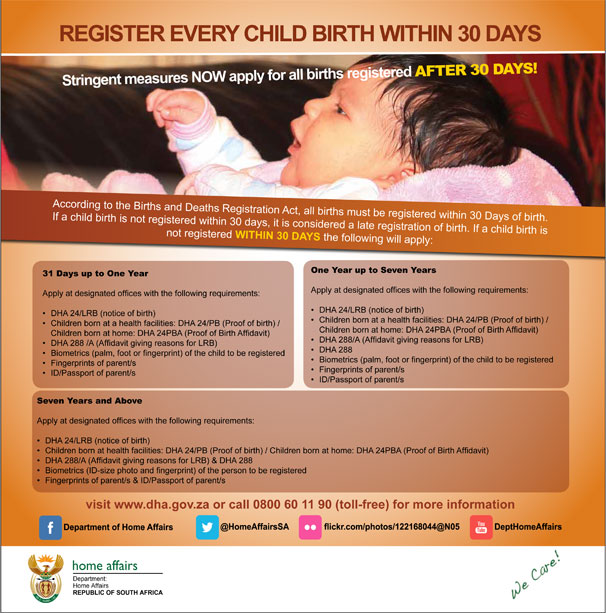
Jobs: Social Development
Jobs: Social Development andileApplications: The Director General, Department of Social Development, Private Bag X901, Pretoria, 0001, Physical Address: HSRC Building, 134 Pretorius Street
Enquiries: Adv A Brink Tel: (012) 741-6846
Closing Date: 12 February 2016
Directions to candidates:
Curriculum vitae with a detailed description of duties, the names of two referees and certified copies of qualifications and identity document must accompany your signed application for employment (Z83). In the event of hand delivery of applications, applicants must sign an application register book as proof of submission. All shortlisted candidates for SMS posts will be subjected to a technical exercise that intends to test relevant technical elements of the job, the logistics of which will be communicated by the Department. Following the interview and technical exercise, the selection panel will recommend candidates to attend a generic managerial competency assessment (in compliance with the DPSA Directive on the implementation of competency based assessments). The competency assessment will be testing generic managerial competencies using the mandated DPSA SMS competency assessment tools. The successful candidate will sign an annual performance agreement, complete a financial discloser form and will also be required to undergo a security clearance. If the candidate is applying for an OSD post, certificates of service must be attached to the CV. It is the applicant’s responsibility to have foreign qualifications evaluated by the South African Qualification Authority (SAQA). Failure to submit the requested documents will result in your application not being considered. Personnel suitability checks will be conducted on short listed candidates and the appointment is subject to positive outcomes of the checks. Correspondence will be limited to shortlisted candidates only. The selection of candidates will be done with due regard to the relevant aspects of the selection process as set out in the Public Service Regulations, 2001 (as amended) Part VII/D. Applications received after the closing date will not be taken into consideration. No faxed or e-mailed applications will be considered. If you have not been contacted within three months after the closing date of this advertisement, please accept that your application was unsuccessful. Candidates requiring additional information regarding the advertised posts may direct their enquiries to the person as indicated above. (n) Internal applicants must submit and register their employment applications at the register book in the DSD reception area for the attention of Ms E de Waal. It is our intention to promote representivity (race, gender and disability) in the Public Service through the filling of these posts and candidates whose transfer/ promotion/ appointment will promote representivity will receive preference.
Director : Legal Case Assessment and Adjudication (Ref: 2016/01)
Chief Directorate: Social Assistance Appeals
Package: R 864 177 per annum
This inclusive remuneration package consists of a basic salary, the states’ contribution to the Government Employees Pension Fund and a flexible portion that may be structured i.t.o. the applicable rules.
Centre: Harlequins Office Park, Groenkloof
Requirements: An appropriate recognised four-year Law Degree or equivalent qualification (NQF level 7) as recognised by SAQA Plus five (5) years relevant experience at middle or senior management level within administrative law. Knowledge of interpretation and implementation of Social Assistance Legislation and Administrative Justice.
Competencies needed: Financial management skills. Project management skills. Communication (verbal and written) and liaison skills. Planning and organising skills. Strategic capability and leadership skills. Customer care skills. Analytical skills. Monitoring and evaluation skills. Presentation and facilitation skills. Negotiation skills. Computer literacy. Research skills. Problem-solving skills. Coordination skills.
Attributes: Assertive. Ability to work in a team and independently. Compliant. Diplomatic. Ability to work under pressure. Decisiveness. Adaptive. Confident. Accurate. Self-starter. Trustworthiness.
Key Responsibilities: Coordinate Legal Case Assessment Services. Oversee the effective functioning of the Adjudication and Post Adjudication processes within the policy framework. Manage terms of conduct, proceedings and enlistment of the Panel Members of the Tribunal. Coordinate and manage training of Panel Members of the Tribunal on the Regulatory Framework. Develop, implement and review norms, standards and forms for Legal Case Assessment, Adjudication and Post Adjudication in line with the Social Assistance Act and Regulations and Compatibility with Administrative Justice Legislation. Conduct quality assurance on adjudicated files to ensure compliance to norms and standards of Adjudication. Coordinate strategic or periodic specific reports on the status of appeals and recommend policy reviews. .
Jobs: South Africa Social Security Agency
Jobs: South Africa Social Security Agency andileApplications: Forward your application, quoting the relevant reference number, to: The Director General, Department of Social Development, Private Bag X901, Pretoria 0001 or deliver by hand at the HSRC Building, 134 Pretorius Street, for attention: Mr D Chinappan.
Enquiries: Mr D Chinappan Tel: (012) 312 7504
Closing Date: 15 February 2016
Direction to candidates: (a) Curriculum vitae with a detailed description of duties, the names of two referees and certified copies of qualification and identity document must accompany your signed application for employment (Z83); (b)In the event of hand delivery of applications, applicant must sign an application register book as proof of submission; (c) All shortlisted candidates will be subjected to a technical exercise that intends to test relevant technical elements of the job, the logistics of which will be communicated. Following the interview and technical exercise, the selection panel will recommend candidates to attend a generic managerial competency assessment (in compliance with the DPSA Directive on the implementation of competency based assessment). The competency assessment will be testing generic managerial competencies using the mandated DPSA SMS competency assessment tools. (d) The successful candidate for a SMS post will sign an employment contact and an annual performance agreement, complete a financial disclosure form and will also be required to undergo a security clearance. (e) If the candidate is applying for an OSD post, certificates of service must be attached to the CV. (f) It is the applicant's responsibility to have foreign qualification evaluated by the South African Qualification Authority (SAQA). (g) Failure to submit the requested documents will result in your application not being considered. (h) Personnel suitability checks will be conducted (i) Correspondence will be limited to shortlisted candidates only. (j) The selection of candidates will be done with due regards to the relevant aspects of the selection process as set out in the Public Service Regulation, 2001 (as amended) Part VII/D. (k) Application received after the closing date will not be taken into consideration. (l) No faxed or e-mailed application will be considered. (m) If you have not been contacted within three months after the closing date of this advertisement, please accept that your application was unsuccessful. (n) Candidate requiring additional information regarding the advertised post may direct the enquiries to the person as indicated below. (o) Internal applicants must submit and register their employment application at the register book in the DSD reception area for the attention of Ms E De Waal. (p) It is our intention to promotion representivity (race, gender and disability) in the Public Service through the filling of this post and candidates whose transfer / promotion/appointment will promote representivity will receive preference.
Chief Executive Officer (Five Year Contract Appointment)
Salary: R 1,656,618.00 per annum plus a 10% non-pensionable HoD Allowance. The inclusive remuneration package consist of a basic salary, the states contribution to the government employees Pension Fund and a flexible portion that may be structured i.t.o. the applicable rules.
Location: Head Office - Pretoria
Requirements: Applications are invited from persons in possession of a Bachelor's Degree or equivalent qualification (NQF level7) and a post graduate qualification (NQF Level 8) as recognized by SAQA PLUS 8-10 years' experience at a Senior Management level (5 years must be as a member of the SMS in the Public Service).
Competencies: Strategic capability and leadership. Programme and project management. Financial management. Change management. Knowledge management. Service delivery innovation. Problem solving and analysis. People management and empowerment. Client orientation and customer focus. Communication (written and verbal). Honesty and integrity.
Attributes: Ability to initiate and support organisational transformation and change. Ability to explore and implement new ways of delivering services that will contribute to the improvement of organisational processes and to build the highest standard of ethical and moral conduct. Ability to provide vision, set organisational direction and inspire others to deliver on the organisational mandate. Ability to work together with civil society, business, academia and international community.
Key responsibilities: Ensure the effective and efficient management, administration as well as payment of social security grants in South Africa. Provide strategic direction and leadership to ensure continuous improvement of social grants service delivery. Ensure efficient management and administration of the Agency, including the effective utilisation and training of staff, the maintenance of discipline, the promotion of sound labour relations and the proper use as well as care of state property. Render support to the Government and develop as well as implement social security policies. Ensure that policies and legislation are drafted to achieve the strategic goals set by the Minister of Social Development for the Agency. Develop effective strategies and programmes to give effect to policies and legislation. Manage communication and dissemination of information on the social development sector.
Jobs: Justice and Constitutional Development Feb 2016
Jobs: Justice and Constitutional Development Feb 2016 andileApplications: Tel: 012 315 1111 Private Bag X81, Pretoria, 0001 Momentum Centre, 329 Pretorius Street, Pretoria
Closing date: 15 February 2016
Note: Interested applicants may visit the following website: www.justice.gov.za or www.dpsa.gov.za to view the full job specification of the above positions. Applications must be submitted on Form Z83, obtainable from any Public Service Department or on the internet at www.gov.za. A Z83 form & CV must be accompanied by original certified copies of qualifications, identity document and a driver’s licence where necessary. A SAQA evaluation report must accompany foreign qualifications. Applications that do not comply with the above mentioned requirements will not be considered. All shortlisted candidates for SMS posts will be subjected to a technical exercise that intends to test relevant technical elements of the job, the logistics of which will be communicated. Following the interview and technical exercise, the selection panel will recommend candidates to attend a generic managerial competency assessment (in compliance with the DPSA Directive on the implementation of competency based assessments).
The successful candidate will complete a financial disclosure form and also be required to undergo a security clearance. If the candidate is applying for an OSD post, certificates of service must be attached to the CV. The DOJ&CD is an equal opportunity employer. In the filling of vacant posts the objectives of section 195 (1) (i) of the Constitution of South Africa, 1996 (Act No: 108 of 1996), the Employment Equity imperatives as defined by the Employment Equity Act, 1998 (Act No: 55 of 1998) and relevant Human Resources policies of the Department will be taken into consideration. Reasonable accommodation shall be applied for People with Disabilities including where drivers licence is a requirement .Shortlisted candidates will be subjected to a personnel vetting process. Correspondence will be limited to short-listed candidates only. If you do not hear from us within 3 months of this advertisement, please accept that your application has been unsuccessful. The department reserves the right not to fill these positions. Women and people with disabilities are encouraged to apply and preference will be given to the EE targert.
Director: Human Resource Management Reference: 225/15/WC (Re - Advertisement)
Package: R819 126 – R964 902 per annum (All inclusive). The successful candidate will be required to
sign a performance agreement.
Requirements: An undergraduate qualification (NQF Level 7) as recognized by SAQA; At least 6 – 10 years human resource experience of which 6 years must be at middle/ senior management level; A valid driver’s licence
Enquiries:
Adv H Mohamed
Tel: 021 462 5471
Court Manager (3 Posts) Reference: 16/13/KZN; Centre: Magistrate Court: Umzimkhulu
Reference: 16/14/KZN; Centre: Magistrate Court: Ixopo
Reference: 15/ 139 /FS; Centre: Magistrate’s Offices: Bloemfontein
(This is a Re-advertisement, candidates who previously applied are encouraged to re-apply)
Salary: R361 659 – R426 009 per annum.
The successful candidate will be required to sign a performance agreement.
Requirements: A 3 year qualification in Administration and/or a National Diploma in Services Management (NQF level 5) plus the module in Case Flow Management or equivalent qualification; At least 3 years’ managerial or supervisory experience; A valid driver’s licence; Knowledge and experience in office and district administration; Knowledge of financial management and the PFMA; Experience in managing Trust (Third Party Funds) and Vote Account: Experience in the Court environment will be an added advantage.
Enquiries:
KZN: Mr J.N. Mdaka (031) 372 3000
Free State: Ms. N Dywili at (051) 407 1800
Cluster Manager: Court Interpreting (2 Posts)
Reference:16/15/KZN; Centre:Magistrate’s Court, Durban
Reference:16/16/KZN; Centre: Magistrate’s Court, Emlazi
Salary: R289 761 – R341 313 per annum.
The successful candidate will be required to sign a performance agreement.
Requirements: NQF level 4/ Grade 12 and National Diploma in Legal Interpreting at NQF level 5 or any other relevant tertiary qualification at NQF level 5; Proficiency in English and two or more indigenous languages; Six years’ practical experience as a Court Interpreter with minimum three years supervisory experience; A valid driver’s licence.
Enquiries:
Mr J.N. Mdaka
Tel: 031 372 3000
Assistant State Attorney, (LP3-LP4) (2 Posts)
Reference: 16/03/SA
Salary: R229 773 – R657 924. (Salary will be in accordance with OSD determination). The successful candidate will be required to sign a performance agreement.
Requirements: An LLB or 4 year recognized legal qualification; Admission as an Attorney; At least 2 years appropriate post legal/litigation experience; A valid driver’s licence.
Enquiries:
Mr E. Seerane
Tel: 012 315 1780
Registrar (MR-2 - MR-5) (3 Posts)
Reference:16/17/KZN,Centre: Magistrate Court, Durban
Reference: 16/18/KZN, Centre: Magistrate Court, Newcastle
Reference: 16/19/KZN, Centre: Magistrate Court, Vryheid
Salary: R175 765 – R708 765 per annum. (Salary will be in accordance with OSD determination).
The successful candidate will be required to sign a performance agreement.
Requirements: LLB degree or four year recognised legal qualification; At least 1 year appropriate post qualification legal experience; A valid driver’s licence.
Enquiries:
Mr J.N. Mdaka
Tel: 031 372 3000
Legal Administration Officer (MR-3 - MR-5) (2 POSTS)
Reference: 16/20/KZN
Salary: R195 945 – R708 765 per annum. (Salary will be in accordance with OSD determination).
The successful candidate will be required to sign a performance agreement
Requirements: An LLB or 4 year recognized legal qualification; At least 2 years post graduate legal experience; A sound knowledge of the South African Legal system; An understanding of the principles of Batho Pele, Victim’s Charter and Restorative Justice; A valid driver’s licence Knowledge on the implementation of legislation affecting vulnerable groups; Proficiency in isiZulu will be an added advantage.
Enquiries:
Mr J.N. Mdaka
Tel: 031 372 3000
Maintenance Officer (MR2 – MR 5) (2 POSTS)
Reference: 16/21/KZN
Salary: R175 509 – R708 765 per annum. (Salary will be in accordance with OSD determination).
The successful candidate will be required to sign a performance agreement.
Requirements: LLB degree or four year recognised legal qualification; At least 1 year appropriate post qualification legal experience; Extensive knowledge of the maintenance system and family law matters; A valid driver’s licence; Knowledge of the Maintenance Act (Act 99 of 1998).
Enquiries:
Mr J.N. Mdaka
Tel: 031 372 3000
2016: A busy year for national teams
2016: A busy year for national teams andileMost of South Africa’s national teams are going to have a busy year competing in international competitions.
All our teams including the men’s senior national team (Bafana Bafana), the under 23s (Amaglug-glug), the women’s senior national team (Banyana-Banyana) and the Proteas, are going to test their competitiveness with their many counterparts from all corners of the world in various competitions.
Bafana Bafana will have a two-legged tough encounter with West African powerhouse Cameroon to qualify for the 2017 African Cup of Nations and the 2018 FIFA World Cup to he hosted by Russia.
SOCCER
The first leg will be played on March 23 and the return leg will be played five days later. For the first time in the history of South African football, the country will have two national teams competing at the Olympics. This after both the national under 23s and the women’s senior national team both qualified for the Rio de Janeiro Olympics in Brazil later this year.
Both teams will be competing in the Olympics for the second time after the national under 23 last made an appearance in the Sydney Olympics in 2000 while the women’s senior national team made an appearance recently at the London Olympics in 2012.
CRICKET
The Proteas will battle world’s best cricket playing nations in the T20 International World Cup to be hosted by India. The World Cup will be played from the 11 March 2016 to the 3 April 2016.
RUGBY
Following their recent disappointment in the World Cup, the Springboks will want to close that chapter and focus on the 2016 Rugby Championship featuring the top three nations in rugby from the southern hemisphere. The competition will feature the world champions New Zealand, losing finalists Australia, South Africa and Argentina both were semifinalists in the 2015 Rugby World Cup.
This year will also be a year where the best athletes in the world compete in the 2016 Olympic Games to be held in Rio de Janeiro (Brazil).
THE OLYMPIC GAMES
The Olympic Games will be held between the 5 August to 21 August 2016 while the Paralympic Games will be played the next month from the 7th of September to the 18th of September 2016.
As the previous Olympic Games in London 2012, South Africa will send a team to represent the country at the competition. President of the South African Sports Confederation and Olympic Committee (SASCOC) Gideon Sam said preparations for the Rio Olympics are at an advanced stage.
“We are all very aware that it’s an Olympic year and we’re busy putting the finishing touches to all the work that commenced immediately after the London Olympics. “It hasn’t been easy because the harder we work, the harder the other countries seem to work.”
He added that he is hopeful that the team that will be sent to Brazil to represent the country will perform better and improve on the performance of the 2012 team.
SWIMMING
“Our athletes in both the Olympic and Paralympic discipline performed admirably and we are sure that their hard work will bear fruit come Rio 2016.” South African swimmers will also have a busy year. After competing at the Olympics, they will compete at the 2016 FINA World Swimming Championships to be held in Windsor, Canada, He added that the target for the next competition will be 10 medals.
“I still believe 10 medals are do ‘able, but the ‘sober’ minds around me say, we should expect around seven. An improvement of only one medal compared to London doesn’t really sit well with me, but time will tell.”
Young, talented SA golfers dominated Joburg Open
Young, talented SA golfers dominated Joburg Open andileTwenty-one-year-old Johannesburg golfer Haydn Porteous became R2.6- million richer after winning the 2016 Joburg Open at the Royal Johannesburg and Kensington Golf Club in Linksfield North.
The young man's top-drawer performance, which saw him peel off a 210-strong field of local and international golfers to finish three-under 69, was greeted with glee by Acting Johannesburg Mayor Councillor Mally Mokoena. MMC Mokoena said Porteous's victory demonstrated that the future of golf in Johannesburg was in good hands.
"Johannesburg is a world-class African city. It's the home of champions who are fearlessly taking on the world. The future seems bright for youngsters like Haydn," she said as she handed him the trophy. Porteous’s nearest rival was fellow South African Zander Lombard, who celebrated his 21st birthday last month. Lombard finished second after a 71, which included four birdies and three bogeys. He pocketed R1.8-million for his efforts."
"Porteous’s friend, 22-year-old Brandon Stone, was the winner of the South African Open last month. Brandon and I have been playing against each other and trying to beat each other since we were kids. Watching a contemporary of mine win gave me the belief I could do the same. "Words can’t describe how I feel. It’s surreal to be honest,” he said. Porteous has won many amateur tournaments, including the South African Stroke Play awards in 2012 and 2013. He was the top-ranked golfer when he turned professional in 2013.
This year's Joburg Open’s three top-ranked players - including England’s Anthony Wall, who finished third after a 72 - have also earned their place in the 145th British Open at Royal Troon in July. Stone finished in the 28th position while Ernie Els, who was playing in the Joburg Open for the first time, was placed a distant 44th after struggling to find his rhythm.
 Moulding Jozi’s future golf champs
Moulding Jozi’s future golf champs
Enoch Dineka experienced a life changing moment last month. This is the day when the 18-year-old Grade 11 Alexandra golf enthusiast was, courtesy of the City of Johannesburg, shown the finer points of the game by US-based professional golfer John Hahn during a golf development clinic at the Royal Johannesburg and Kensington Golf Club in Linksfield North.
Dineka was one of 50 learners from Alexandra High School who received guidance and tips from some of the local and international golfers taking part in the 10th edition of the prestigious Joburg Open being hosted by the City. Dineka, who started learning how to play golf at the age of 12, could not hide his elation as Hahn took him through the paces during the tournament.
“John was very patient with me. He even autographed a golf ball for me. I’ll be the envy of my classmates tomorrow,” he said. Also in the group was 15-year-old Monica Mahlangu, who dreams of turning professional and becoming a megastar one day.
“I love the sport. It’s not violent like most sports and I want to represent South Africa one day and make a living from it,” she said. The young golfers’ coach, former professional Obed Matlou, said his biggest wish was to see an Ernie Els or Tiger Woods emerging from Alexandra.
“Besides teaching these kids about the rules of the game, I also warn them not to be big headed. I’ve got rough diamonds and I know that soon one of them will hit the fairways in a big way,” said Matlou.
Bongi Mokaba, the City of Johannesburg’s Director of Events, said the City was planning to inject more resources into the development of golf in disadvantaged communities. She encouraged the youth to use the development clinic to learn as much as possible.
“We’ve been staging the development clinic for the past nine years. We need to ensure that these young learners someday turn out to be professional golfers themselves. For some it might be too late but there are other career opportunities they can tap into in professional golf,” she said.
There were shrieks of joy when Mokaba handed over 10 new golf club sets to Matlou, with the promise of more goodies to come in the future.
